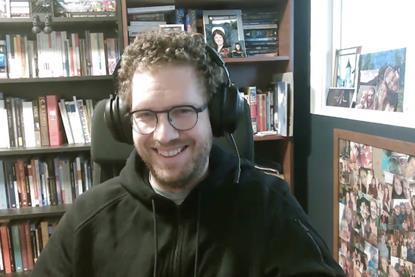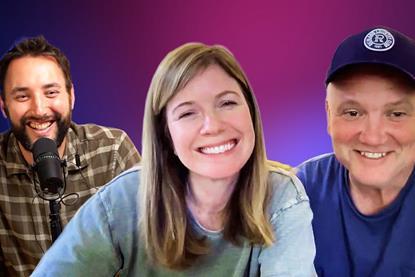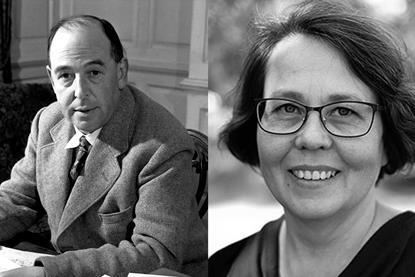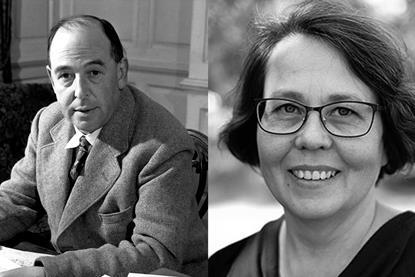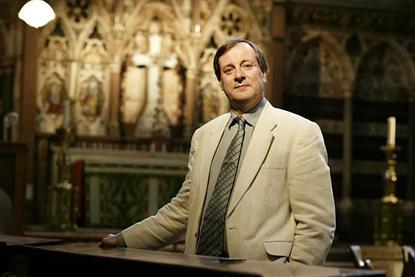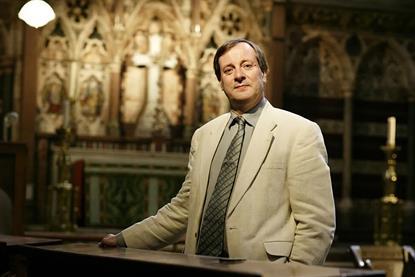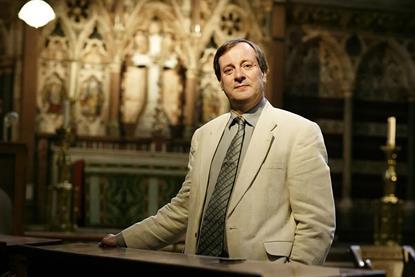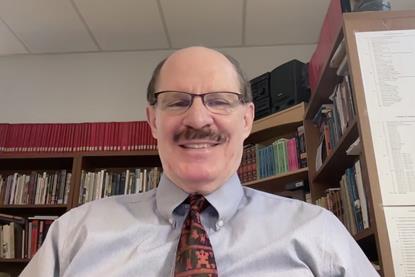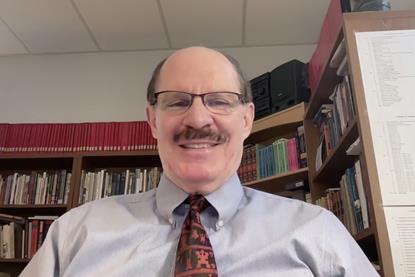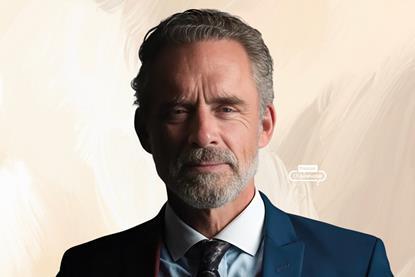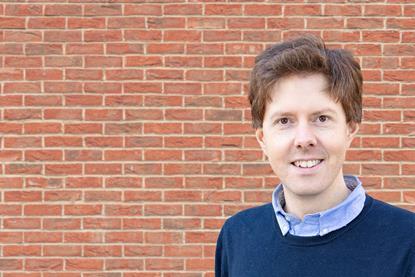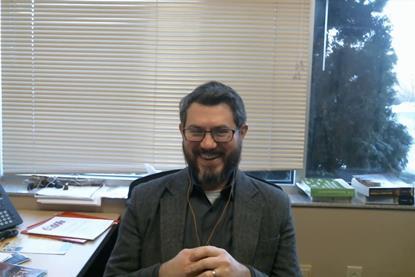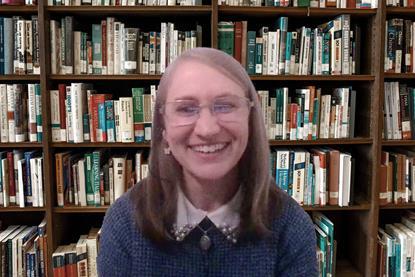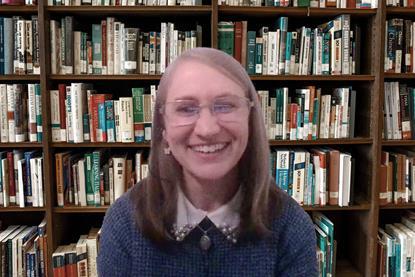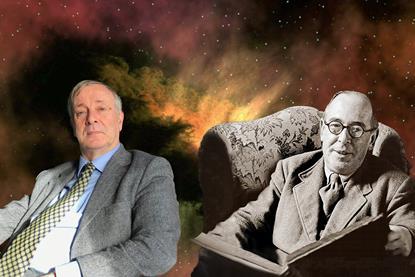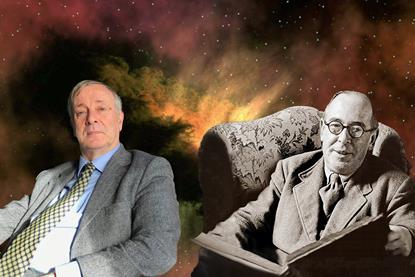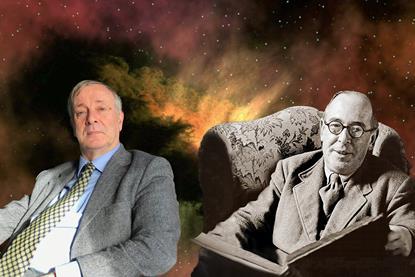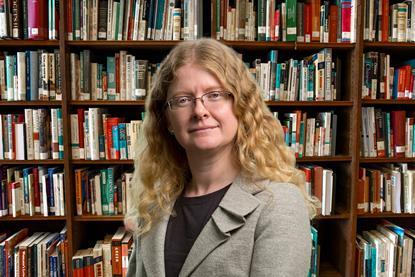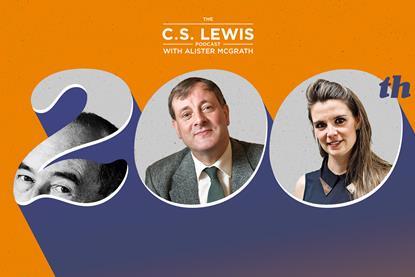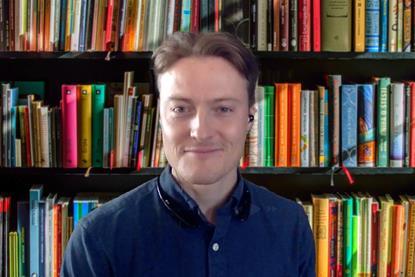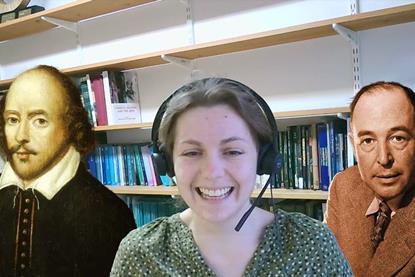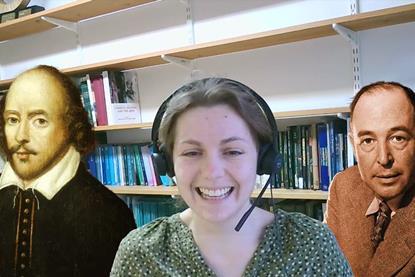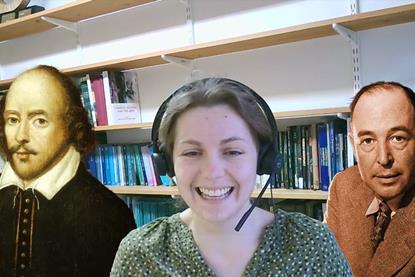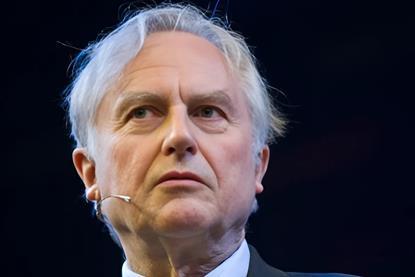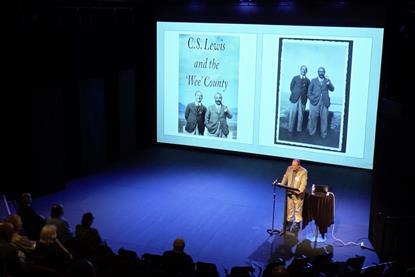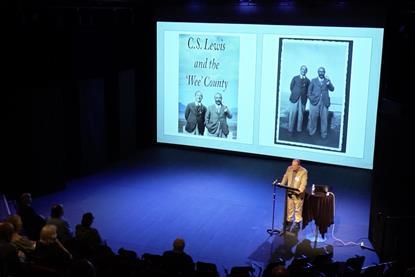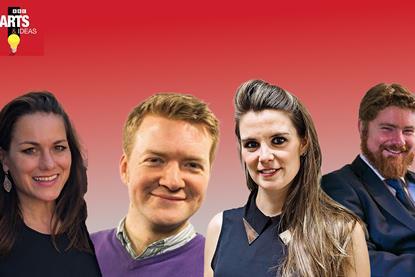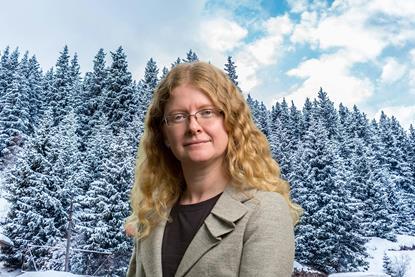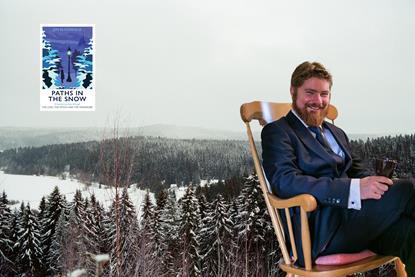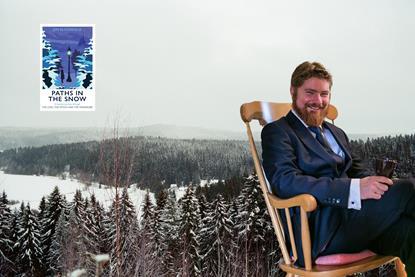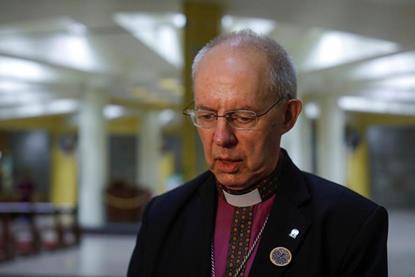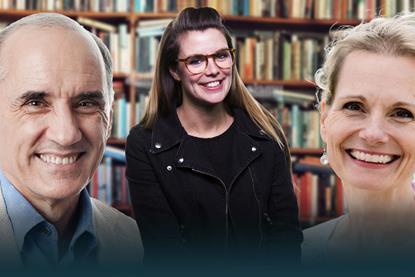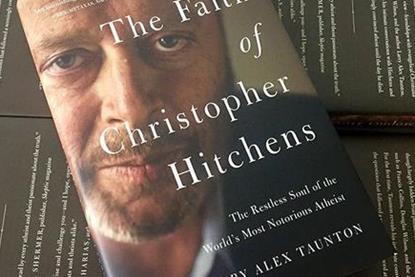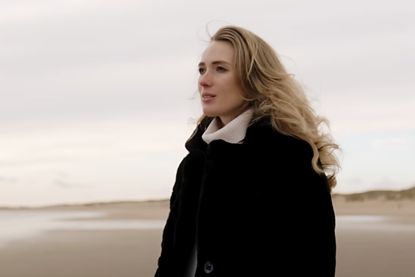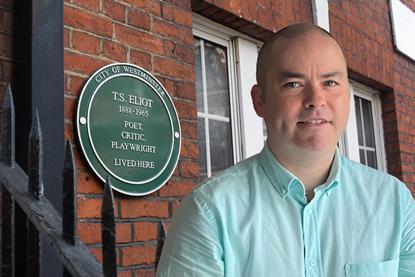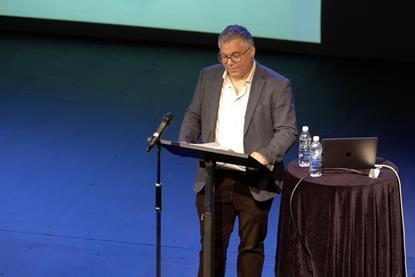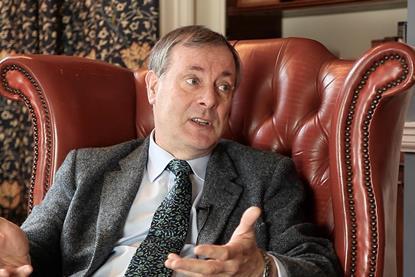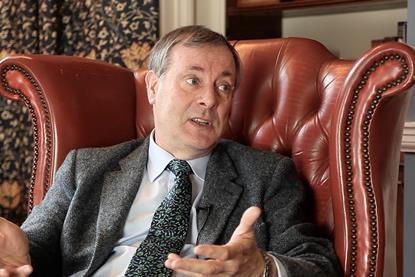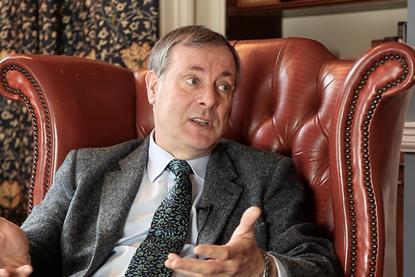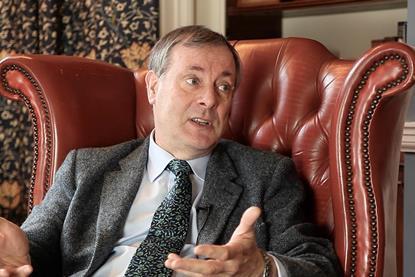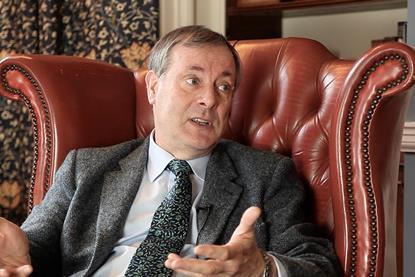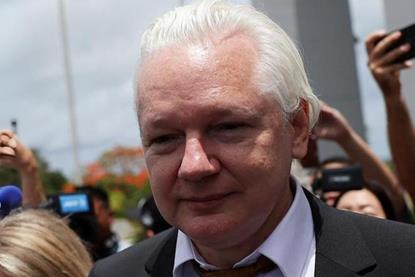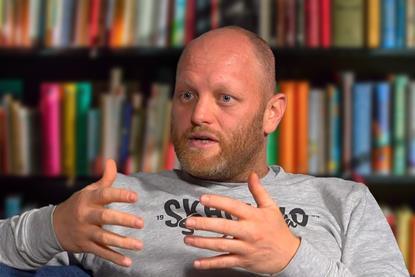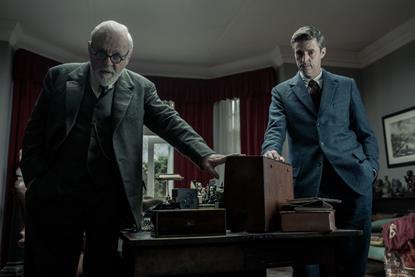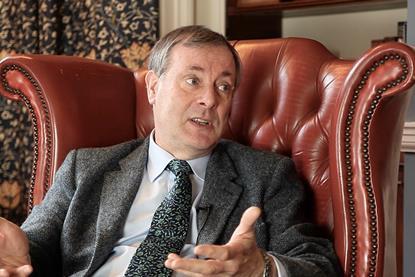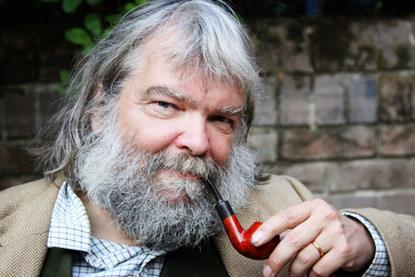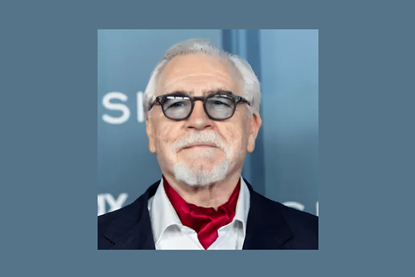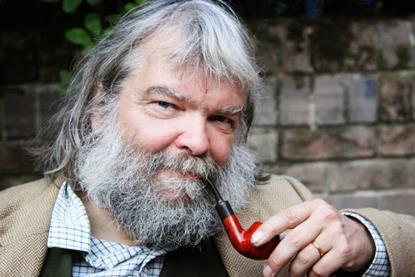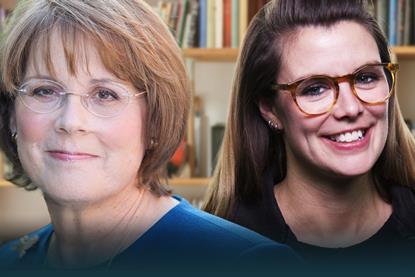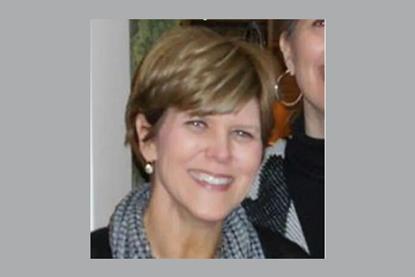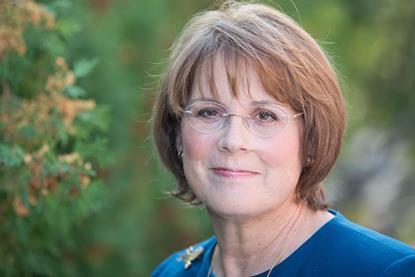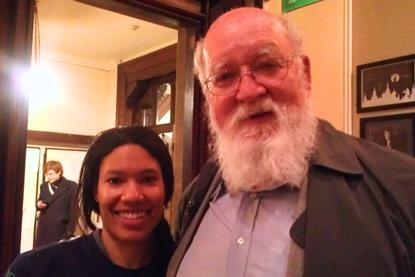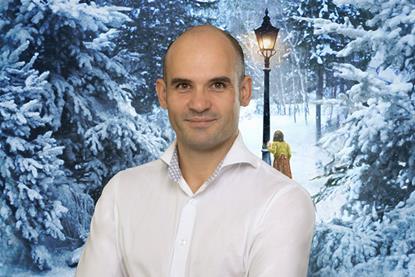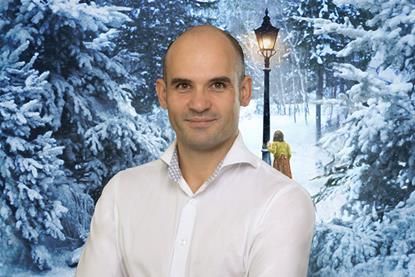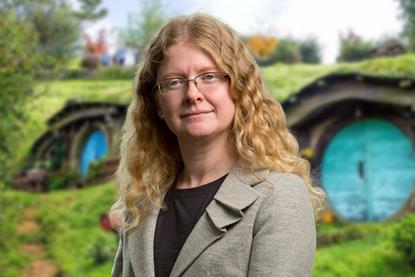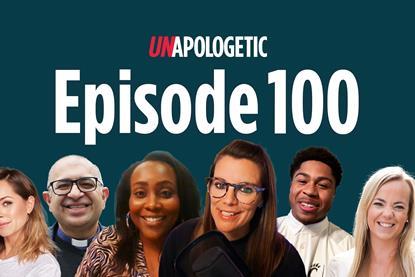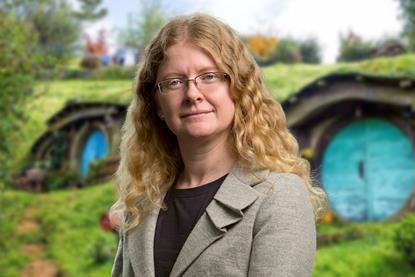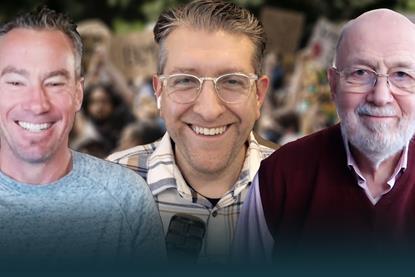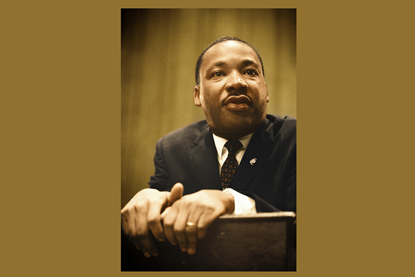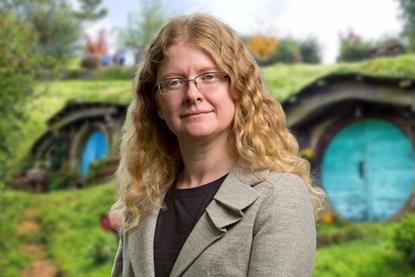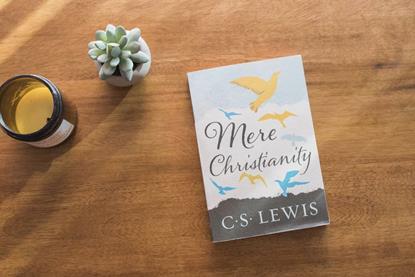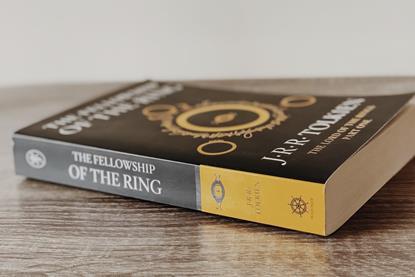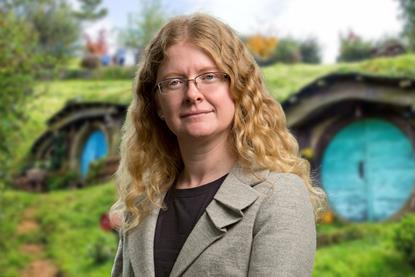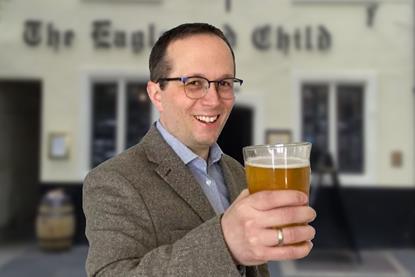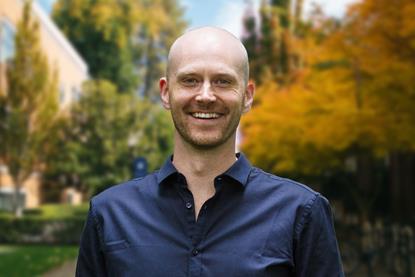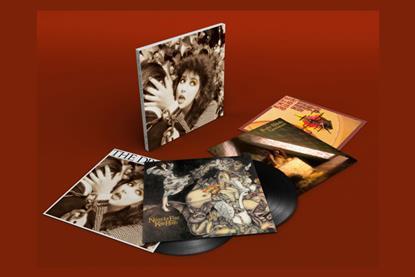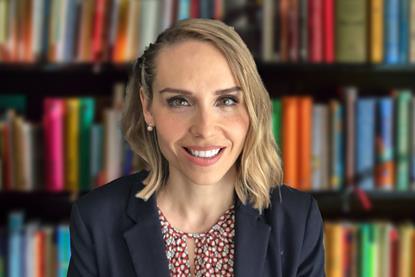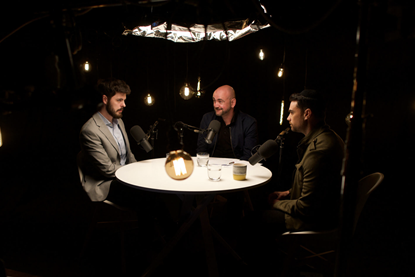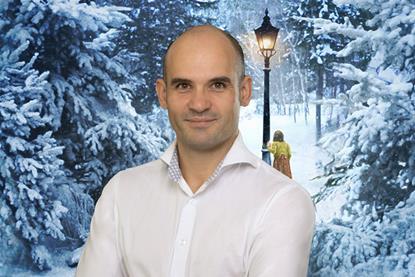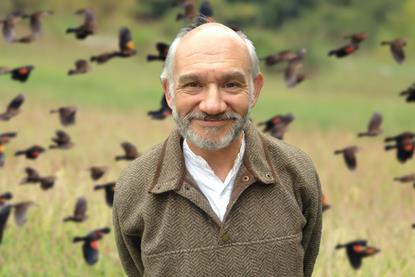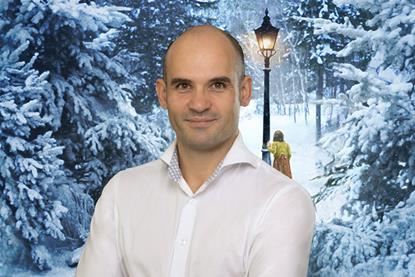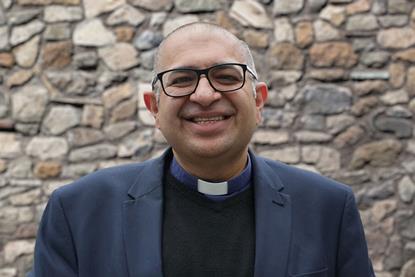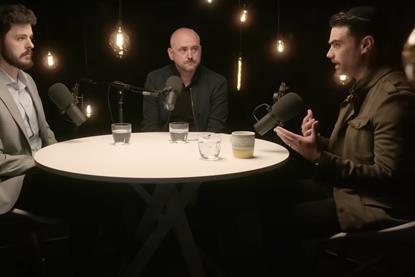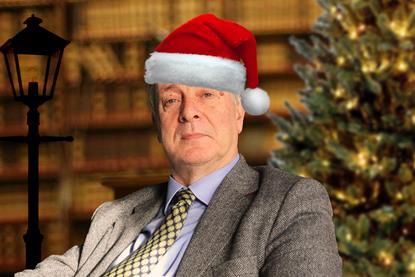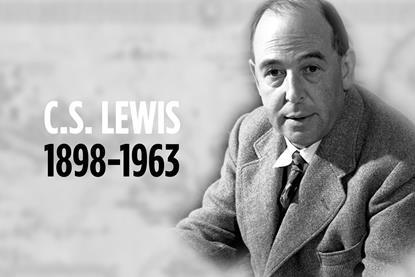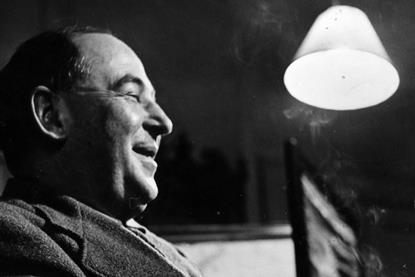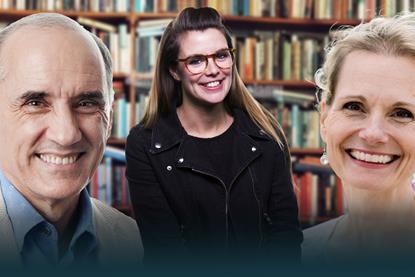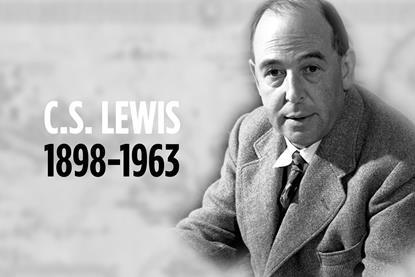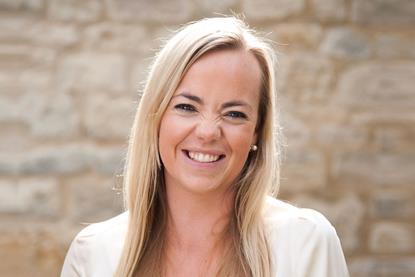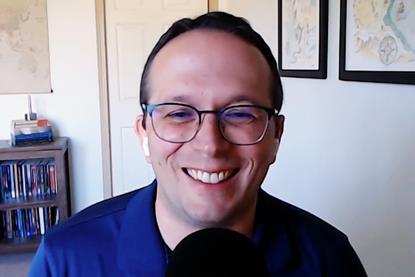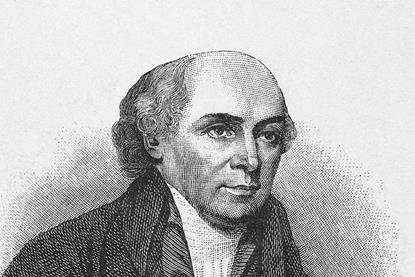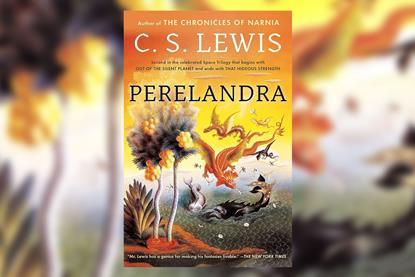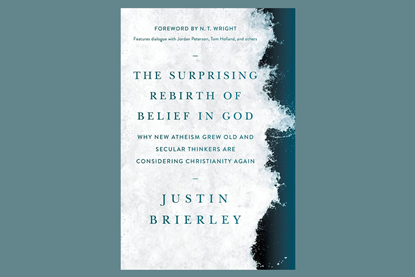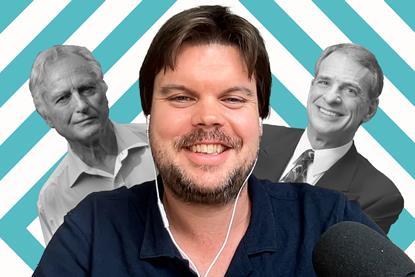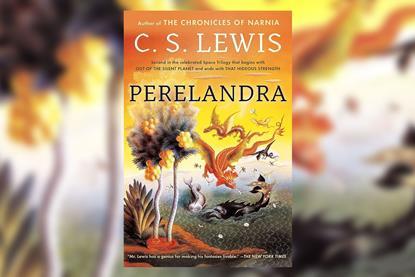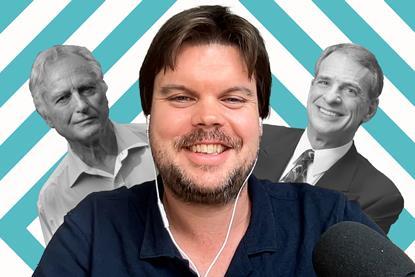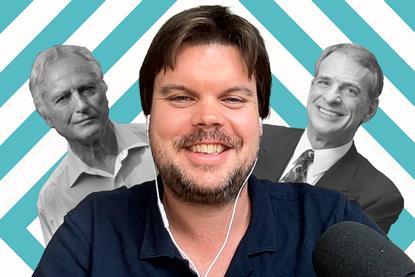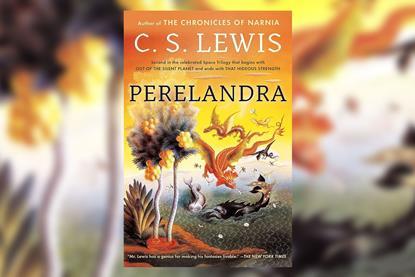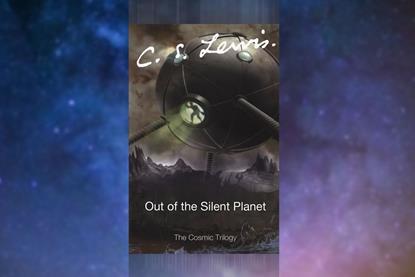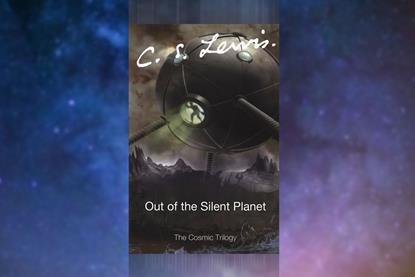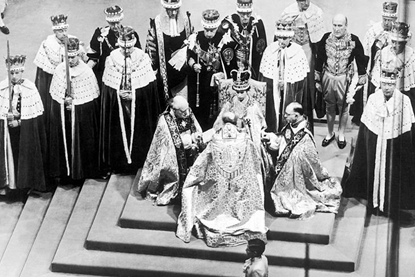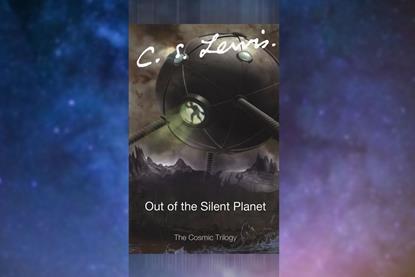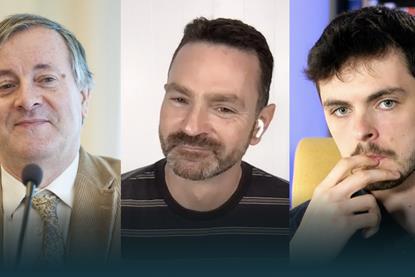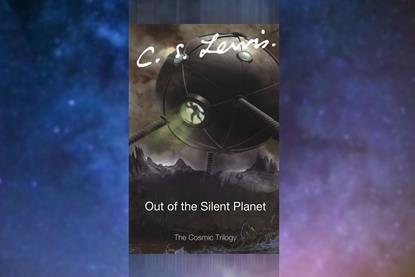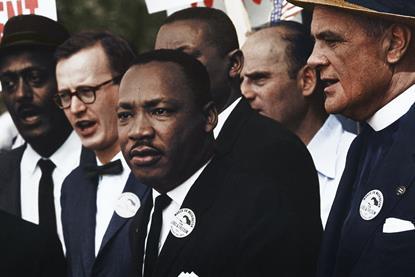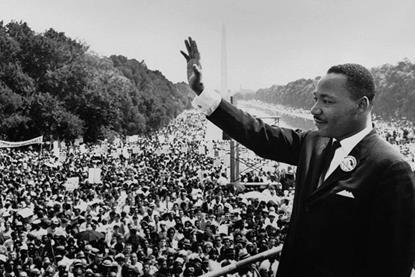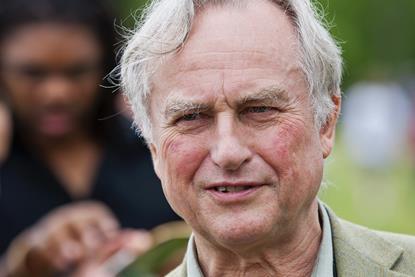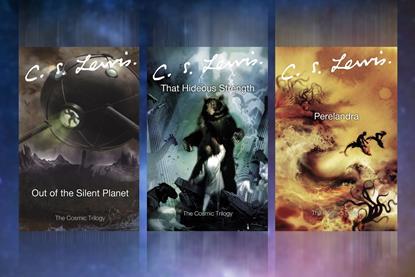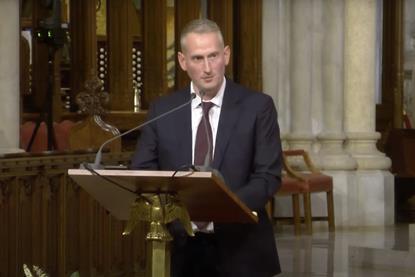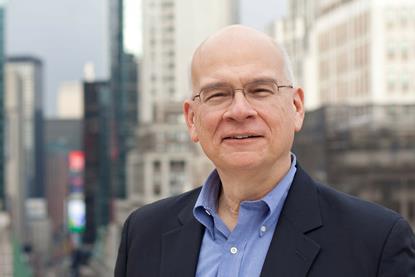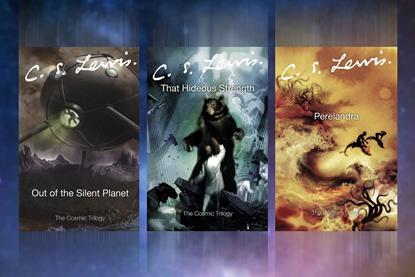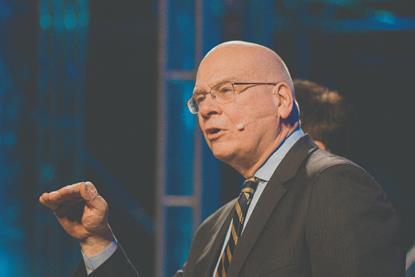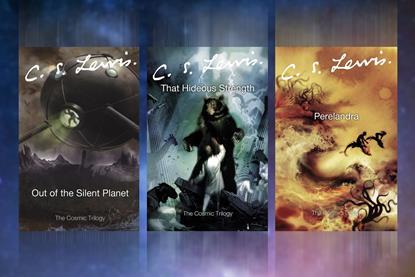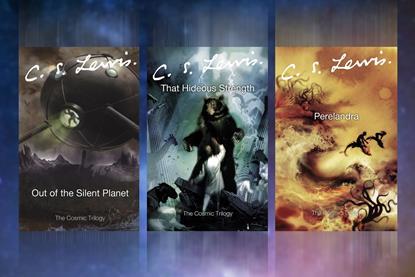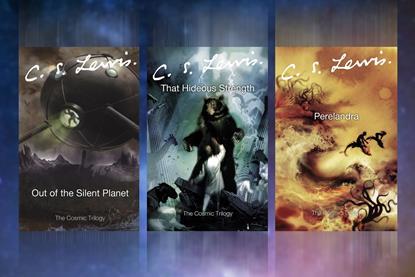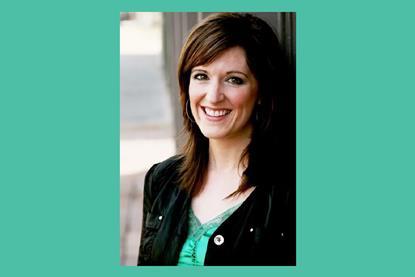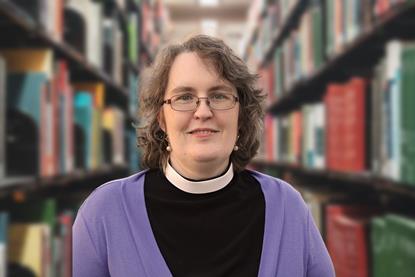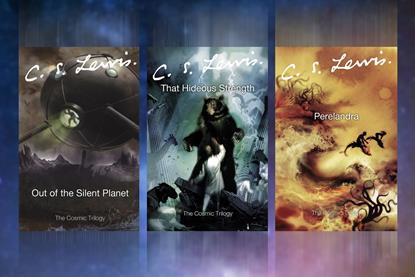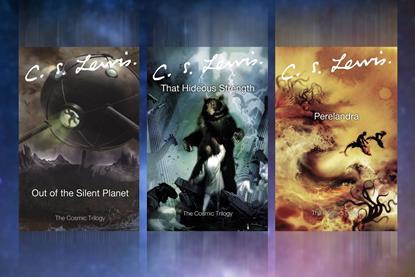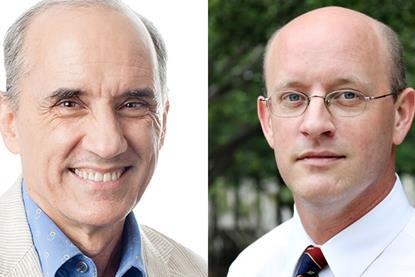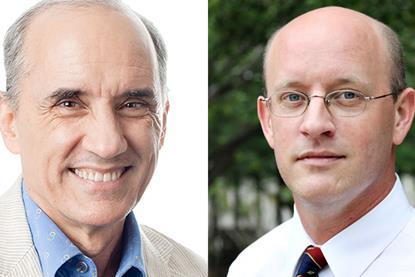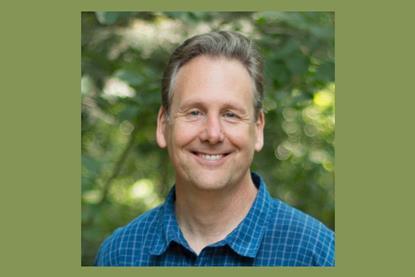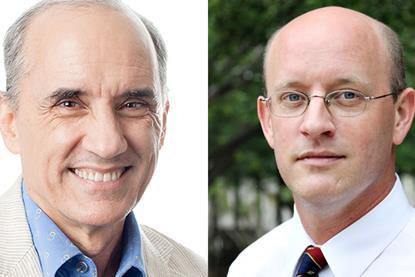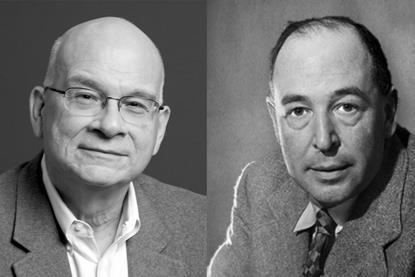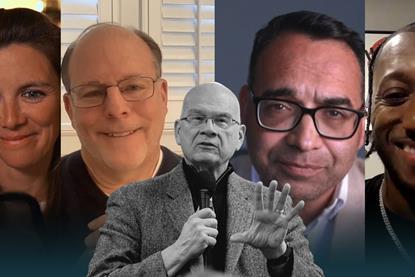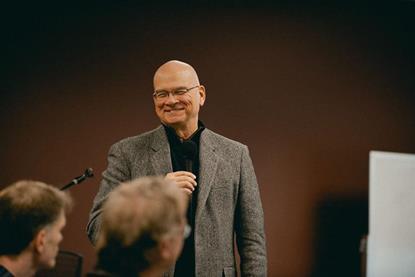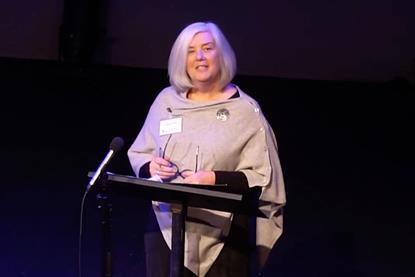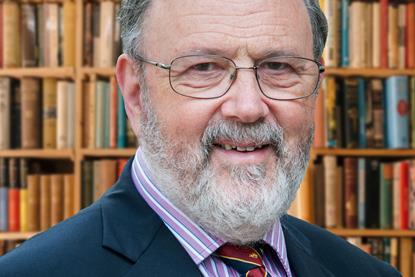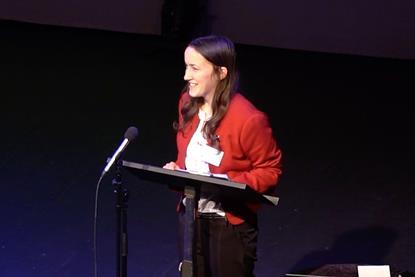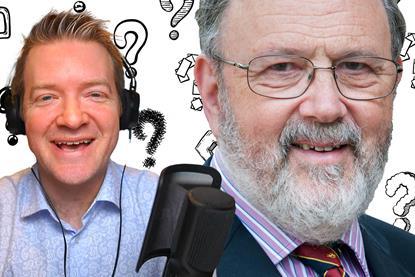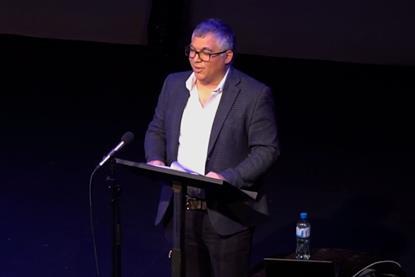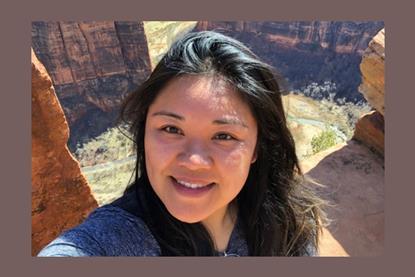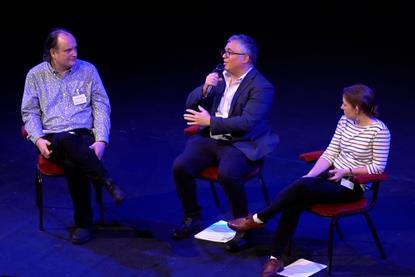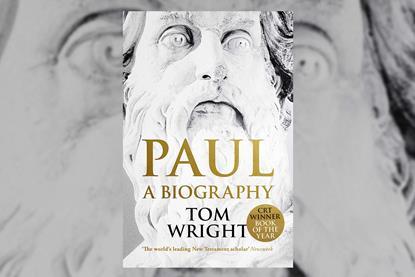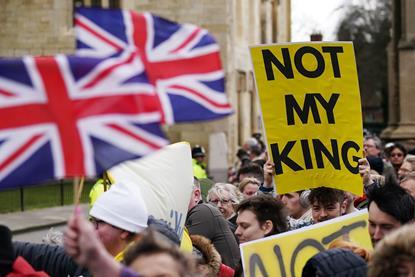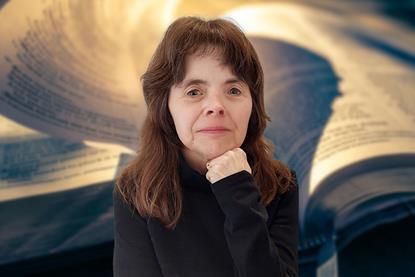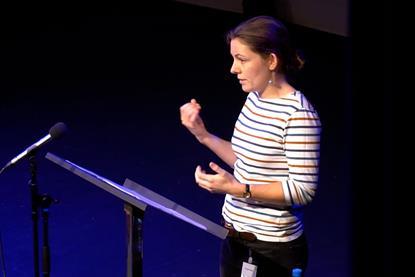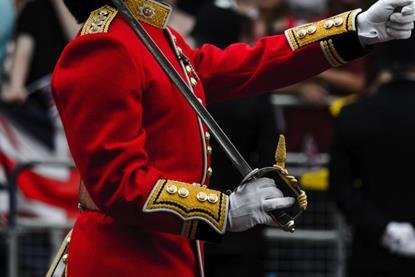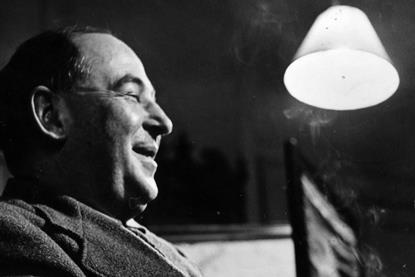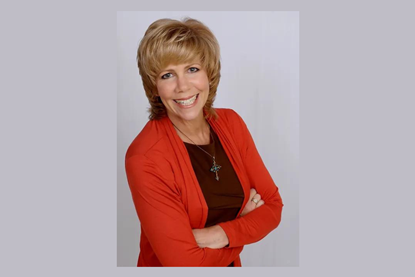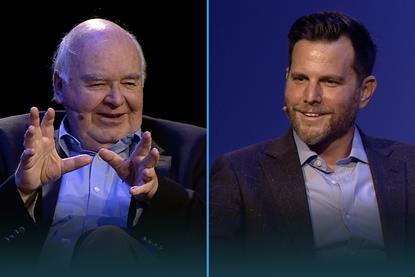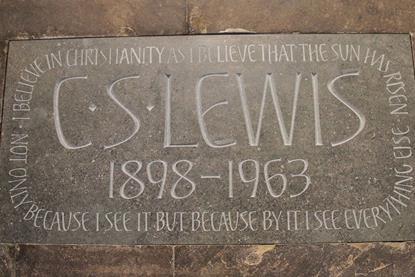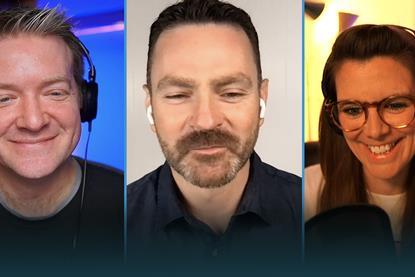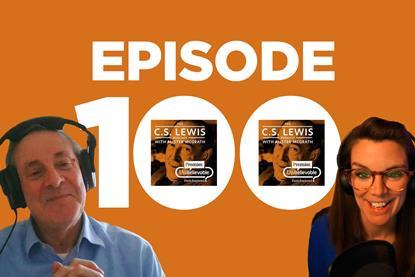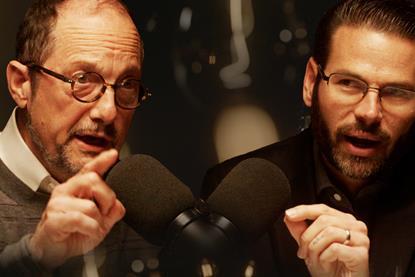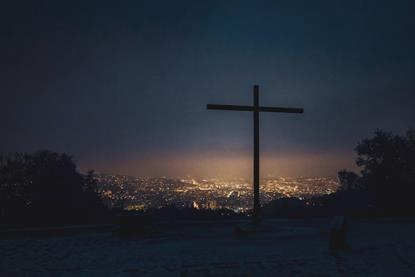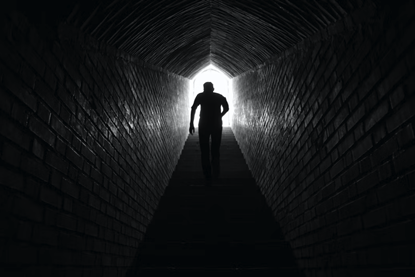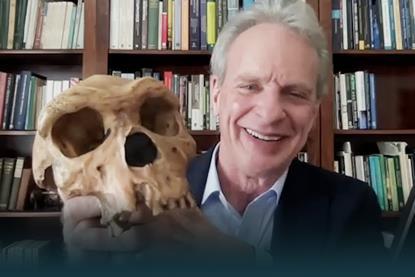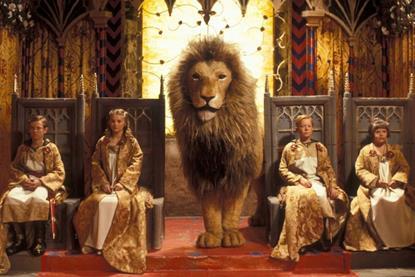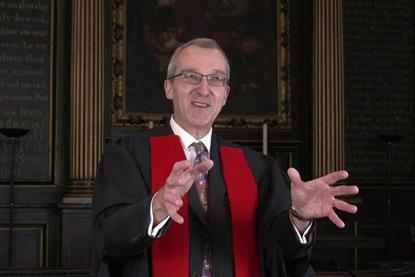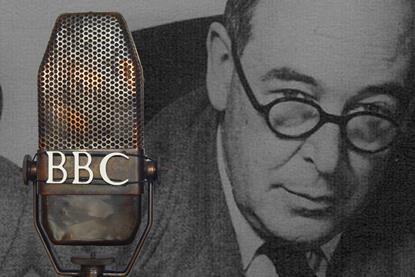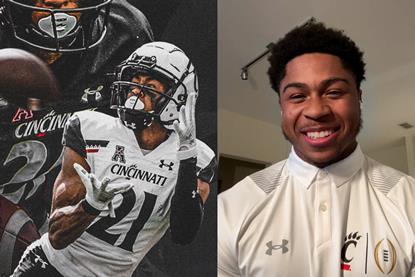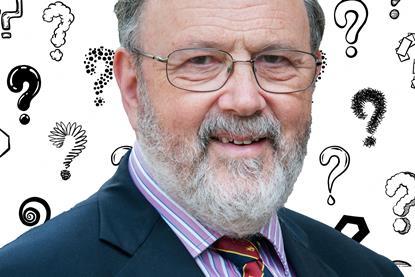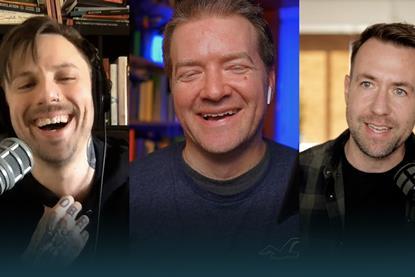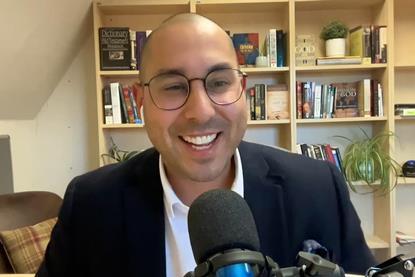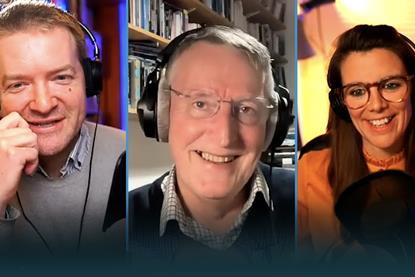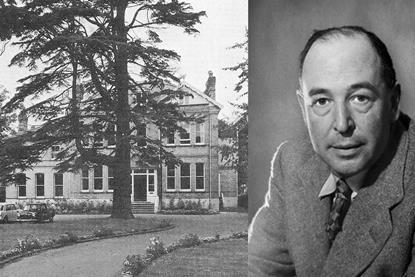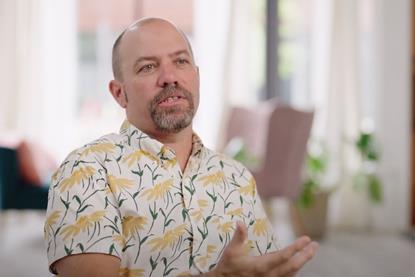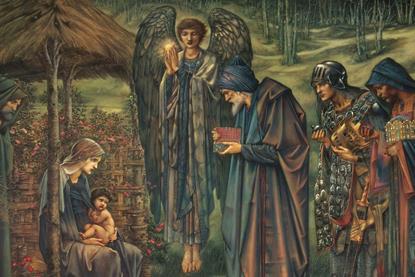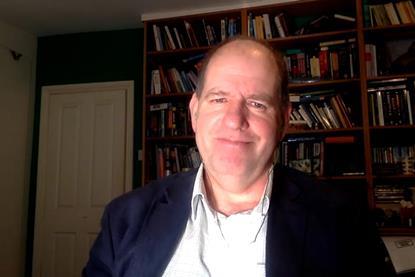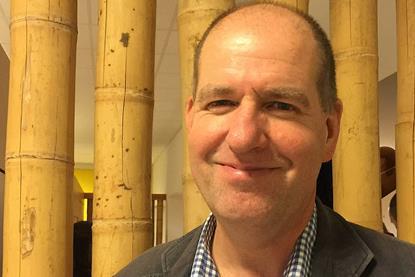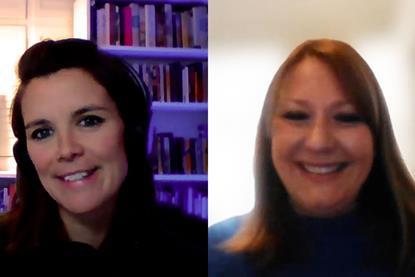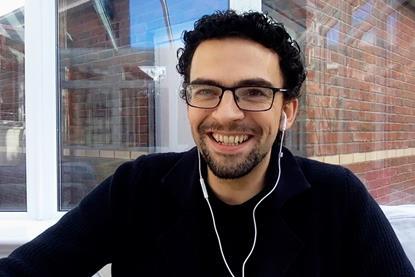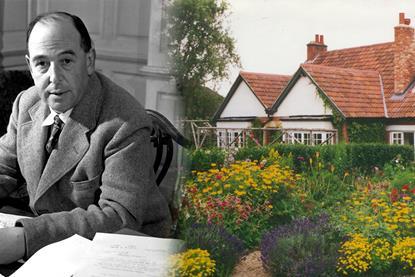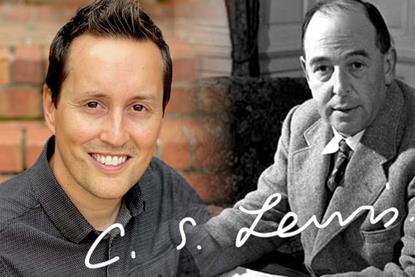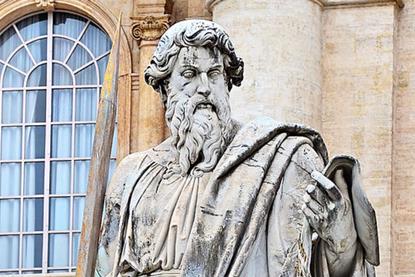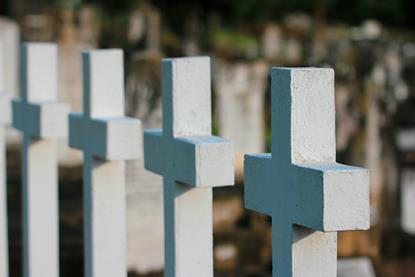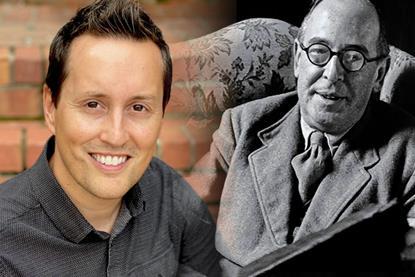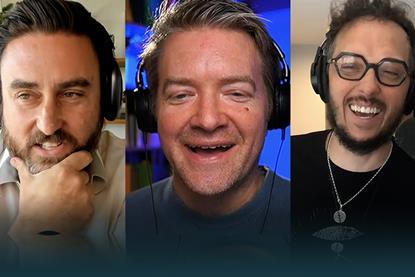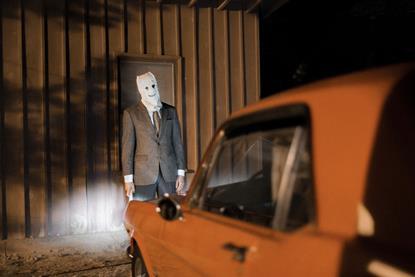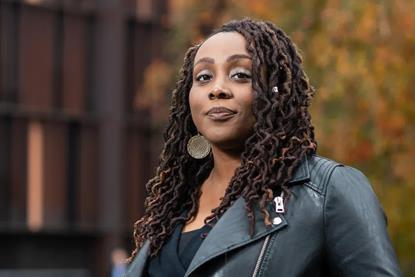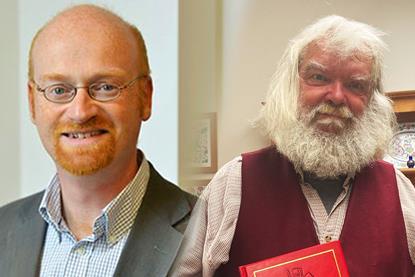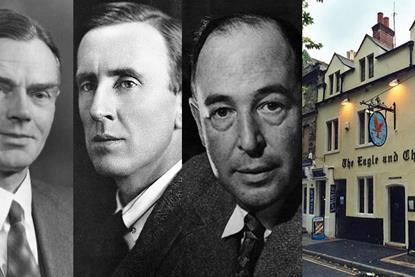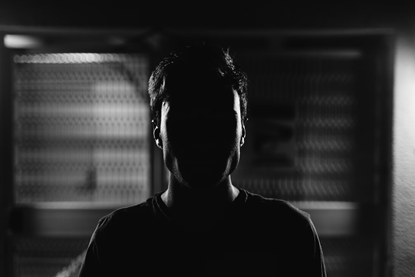People & Influential Figures
#239 Stefan Knibbe: CS Lewis on Freedom, Suffering, and Hell
Stefan Knibbe joins to share how his studies led him to focus on the works of CS Lewis and how Lewis has shaped his thinking and faith. He speaks about his paper, “Freedom, Suffering, and Hell in Till We Have Faces: Lewis’ Shifting Views,” and why Lewis’ ideas on freedom shifted over time.
Keith & Kristyn Getty: Why Congregational Singing Matters
In our inaugural episode of Premier Unbelievable: The Interview, host Luke Martin sits down with modern hymn writers Keith and Kristyn Getty—the duo, alongside Stuart Townend, behind the global hymn “In Christ Alone.”
#234 Lilian Lindén: Did Lewis credit Barfield for what he learned from Steiner?
Ruth Jackson speaks with Lilian Lindén, who has a degree in philosophy of religion, about her paper from the 2024 Undiscovered CS Lewis Conference held at George Fox University. Her paper was titled Did Lewis credit Barfield for what he learned from Steiner?. We then get to hear her paper live from the conference.
#232 Lilian Lindén: The influence and relevance of CS Lewis today
Ruth Jackson speaks with Lilian Lindén, who has a degree in philosophy of religion, about how C.S. Lewis continues to shape faith and thought today. They discuss how she first encountered Lewis, the impact his writings have had on her life, and why his ideas remain so compelling more than 60 years after his death.
#230 Alister McGrath: Theology, miracles and imagination
In today’s episode, Ruth Jackson is joined again by Professor Alister McGrath, to discuss theology in a multi-part series. They explore Lewis’ view on miracles, his belief on the importance of imagination, and how Lewis’ arguments stand up against the New Atheism movement.
#229 Alister McGrath: Reflecting on CS Lewis’ work as a theologian
In today’s episode, Ruth Jackson is joined again by Professor Alister McGrath, to discuss theology in a multi-part series. They reflect on Lewis’ work as a theologian, covering questions such as: What are some of the key theological topics Lewis unpacks in his work?
#228 Alister McGrath: Was CS Lewis a theologian? Part 2
In today’s episode, Ruth Jackson is joined again by Professor Alister McGrath, to discuss theology in a multi-part series. Why do people not consider Lewis a theologian? Who are some of the people who do take him seriously as a theologian, and has he become one in modern times? What can we learn from Lewis’ approach to theology?
The CS Lewis Podcast #226 Paul Anderson: Fern-Seed, Elephants, Bultmann, and Lewis - Varied Expertise in Critical Perspective
We are joined again by Paul Anderson, a Professor of Biblical and Quaker Studies at George Fox University in Oregon, for the final episode in this series. In today’s episode, we get to hear his paper, which was titled Fern-Seed, Elephants, Bultmann, and Lewis - Varied Expertise in Critical Perspective, live from the 2024 Undiscovered CS Lewis conference.
The CS Lewis Podcast #225 Paul Anderson: CS Lewis, the Bible and theology
Paul Anderson, a Professor of Biblical and Quaker Studies at George Fox University in Oregon, is back to discuss C.S. Lewis’ approach to the Bible and theology.
Is Jordan Peterson’s Religious Ambiguity Undermining His Intellectual Legacy?
Jordan Peterson’s refusal to clarify his religious beliefs is drawing scrutiny from both his secular and Christian followers, raising questions about whether his signature ambiguity now undermines his credibility. As calls for authenticity grow louder, is Peterson’s legacy as a bold thinker at risk if he continues to sidestep the question of faith?
The CS Lewis Podcast #219 Dr. Max Baker-Hytch: Was C.S Lewis a philosopher?
Today we are joined by Dr. Max Baker-Hytch, a tutorial fellow in Philosophy at Oxford University, to discuss Lewis and philosophy. Did C.S. Lewis consider himself a philosopher, and should we?
The CS Lewis Podcast #216 Traver Carlson: The Impact of CS Lewis today
Ruth Jackson is joined by Traver Carlson, a PHD candidate in Philosophy at the Institute for Christian Studies, to discuss his paper from the 2024 Undiscovered CS Lewis Conference.
The CS Lewis Podcast #208 Nathan Fayard: The impact of Lewis on life, faith and perspective
Ruth Jackson is joined by Nathan Fayard, an assistant professor of English at Indiana Wesleyan University, to discuss his paper from the 2024 Undiscovered CS Lewis conference held at George Fox University. How did Nathan first encountered Lewis? What impact has he had on his life and faith journey? He also gives a summary Perelandra as we prepare to dive into his paper.
The CS Lewis Podcast #207 Jacqueline Wilson: C.S Lewis's Prayer Life in Historical Context
Ruth Jackson is joined by Jacqueline Wilson, a student working towards her Master of Arts in cultural apologetics from Houston Christian University, to share her thoughts on Lewis’ prayer life in the paper she presented at the 2024 Undiscovered CS Lewis conference, which was held at George Fox University.
The CS Lewis Podcast #206 Jacqueline Wilson: The prayer life of CS Lewis
Ruth Jackson is joined by Jacqueline Wilson, a student working towards her Master of Arts in cultural apologetics from Houston Christian University, to discuss her paper from the Undiscovered CS Lewis conference, and how she first encountered Lewis.
The CS Lewis Podcast #205 Alister McGrath: Lewis on science and evolution
In this episode, Ruth Jackson speaks with Alister McGrath about Lewis’ views on evolution and science. What did Lewis believe about evolution, and how did he separate it from philosophical naturalism? Did he think evolution could explain things like morality and consciousness?
The CS Lewis Podcast #204 Alister McGrath: Lewis on science, miracles and materialism
In this episode, Alister McGrath reflects on what Lewis thought about miracles and science. Did he think miracles could make sense in a world ruled by natural laws? Can someone believe in both science and the supernatural? They also look at Lewis’s response to the ideas of HG Wells, who believed science and religion didn’t mix. Were Wells’ views common in Lewis’s time, and do we still see them today? And how might Lewis’s ideas help us think about science and faith today?
The CS Lewis Podcast #203 Alister McGrath: How CS Lewis bridged the gap between faith and scientific understanding
In this second episode of our mini-series on CS Lewis and science, Ruth Jackson continues the conversation with Professor Alister McGrath. They explore how Lewis challenged the supposed conflict between science and religion, offering instead a richer vision where both disciplines illuminate reality.
The CS Lewis Podcast #201 Holly Ordway: Tolkien, suffering and the problem of evil
Ahead of Tolkien Reading Day on 25th March, Dr Holly Ordway, author of Tolkien’s Faith, explores the contrasting spiritual journeys of J.R.R. Tolkien and CS Lewis—both of whom experienced the profound early loss of their mothers.
The CS Lewis Podcast #200 Ruth Jackson: 200th Episode Special
Ruth Jackson shares some of her favourite moments from the podcast to celebrate the 200th episode. We will be revisiting conversations with Professor Alister McGrath discussing CS Lewis’ relevance and mental health, hearing stories on how Lewis helped bring people to faith, his correspondence with Kathy Keller, and his impact on the creative works of film director Matthew Brown and singer songwriter Sarah Hawkyard.
Is God Dead? The intersection of Nietzsche’s nihilism and the limits for pursuing justice
Apologist Adam Coleman considers a famous exchange between two great abolitionists, and the meaning and purpose that God gives us
The CS Lewis Podcast #199 Michael Oppizzi: Why Till We Have Faces Still Speaks to Us Today
In this third and final episode with Michael Oppizzi, Ruth Jackson asks about his groundbreaking research on planetary symbolism in Till We Have Faces, CS Lewis’ final and often misunderstood novel. Michael shares insights from his paper, presented at the Undiscovered CS Lewis Conference, and his upcoming book project, revealing how planetary themes structure the novel’s vision of truth and divine encounter. Can Lewis’ work still teach us today about faith, myth, and the nature of human longing?
The CS Lewis Podcast #196 How did Shakespeare influence Lewis’ exploration of death, resurrection and the human condition?
How did “great myths” shape Lewis’ understanding of Christian truth? Dr Sarah Waters, assistant professor of language and literature at Sterling College, Kansas, continues to explore the intriguing intersection between Shakespeare’s literary genius and CS Lewis’ spiritual journey.
The CS Lewis Podcast #195 Sarah Waters: Did Shakespeare play a role in Lewis’ conversion?
How did William Shakespeare influence CS Lewis’ conversion to Christianity? Dr Sarah Waters, assistant professor of language and literature at Sterling College, Kansas, draws connections between Lewis’ faith journey and his engagement with Shakespeare’s works.
The CS Lewis Podcast #194 Sarah Waters: How Lewis grew to love Shakespeare
What was Lewis’ favourite Shakespeare play? Dr Sarah Waters, assistant professor of language and literature at Sterling College, Kansas, delves into Lewis’ literary accessibility and theological insights, uncovering the timeless relevance of his work.
Dawkins the Apologist
Erik Strandness shares his reflections on the failures of ‘New Atheism’ and how the movement inspired many to return to the faith
The CS Lewis Podcast #193 Leprechauns, fairies and the Holy Ghost
What did Warnie and Lewis get up to while holidaying in County Louth? How did he encounter leprechauns, fairies and the Holy Ghost? Plus, we hear about some of the key women in Lewis’ life: Mrs Moore, Joy and their housekeeper Vera Henry. Rev Paul Clayton-Lea, author of CS Lewis and the Wee County shares the second half of his talk given at the CS Lewis Group at Ulster’s spring mini symposium and answers audience questions.
The CS Lewis Podcast #192 Warnie, alcoholism and Country Louth
Lewis’ life was not a bed of roses. However, he was still able to find joy in dark situations. For example, discovering beauty and friendship in Ireland’s Country Louth while his brother Warnie was being nursed there for alcohol addiction. Rev Paul Clayton-Lea, author of CS Lewis and the Wee County shares some fascinating personal stories from the Lewis brothers in a talk given at the CS Lewis Group at Ulster’s spring mini symposium.
The CS Lewis Podcast #191 New Atheism, Sigmund Freud and Narnia: Does CS Lewis still matter?
Is CS Lewis relevant today? Can he speak to a post-Christian culture? We hear from Meg Thomson, producer of Freud’s Last Session, a film starring Anthony Hopkins as Sigmund Freud and Matthew Goode as CS Lewis, Dr Jem Bloomfield, an assistant professor at the University of Nottingham and author of Paths in the Snow and Justin Brierley, author of The Surprising Rebirth of Belief in God.
The CS Lewis Podcast #189 Holly Ordway: What did Christmas mean to JRR Tolkien?
How integral was the incarnation for JRR Tolkien? Does Christmas feature in The Lord of the Rings legendarium? How did the Tolkien family celebrate Christmas? Dr Holly Ordway, author of Tolkien’s Faith, shares her thoughts on what Christmas meant to Tolkien and explores a recently discovered poem of his, Noel, which is one of his most overtly Christian works.
The CS Lewis Podcast #188 Jem Bloomfield: Christmas in Narnia
Dr Jem Bloomfield, assistant professor of literature at the University of Nottingham and author of Paths in the Snow, unpacks the Christmas references as well as key elements, such as the stone table and the titles of the Pevensie children, within The Lion, the Witch and the Wardrobe.
The CS Lewis Podcast #187 Jem Bloomfield: Paths in the snow
As Christmas approaches, we unpack some of the key elements in The Lion, the Witch and the Wardrobe with Dr Jem Bloomfield, assistant professor of literature at the University of Nottingham and author of Paths in the Snow.
Making movies is… love, actually
The highly successful British screenwriter and film director Richard Curtis is a good example of a life of service, says Drew Cordell
Why do Christians vote for Trump?
Evangelicals are often blamed for voting for a man who is not a model of virtue and holiness. So why do Christian voters make this choice?
How should we respond to church scandal?
In light of recent events in the Church of England, culminating in Archbishop Justin Welby’s resignation, Drew Cordell looks at whether there is any hope
The CS Lewis Podcast #183 Dan Barker and Carolyn Weber: Is CS Lewis still relevant?
On November 22nd 1963, Clive Staples Lewis – Jack to his friends – died in Oxford, England. However, 61 years after his death, is CS Lewis still relevant? We hear from former pastor-turned atheist, Dan Barker, who suggests that many of Lewis’ arguments are fundamentally flawed. Literature professor, Dr Carolyn Weber, highlights where she disagrees with Dan and shares some of her story about coming to faith at Oxford University, in part through CS Lewis.
Christopher Hitchens was a ‘heretic’ of the New Atheist cause
Contrary to perception and to the opinions of many of his fellow atheists, the late writer perceived aspects of religion to be positive and did not want it to be eradicated – just sidelined
The CS Lewis Podcast #182 Sarah Hawkyard: CS Lewis changed everything
Ruth Jackson spoke to singer-songwriter Sarah Hawkyard who describes Mere Christianity as a “game changer”, which “hooked” her onto Christianity. Lewis played an integral role in Sarah coming to faith, challenging, inspiring and providing her with profound knowledge.
The CS Lewis Podcast #181 Curtis White: What did TS Eliot and Lewis think of each other?
Dr Curtis White’s PhD focuses on the relationship, work and theology of CS Lewis and TS Eliot. Here, he highlights some of his thoughts on this topic as well as sharing how Lewis was integral to his own faith journey. White also talks about the upcoming CS Lewis Symposium in Belfast, which John Brown University is providing financial support for.
The CS Lewis Podcast #180 David Clare: Ecstatic experience
How did Lewis approach ecstatic experiences, particularly in light of his Ulster Protestant background? Dr David Clare of Mary Immaculate College, University of Limerick continues his talk given at the C.S. Lewis Group at Ulster’s spring mini symposium. He also answers questions from the live audience. The event was entitled ‘C.S. Lewis and the Land of His Birth: Re-rooting Lewis in Ulster & the Island of Ireland’. The title of Dr Clare’s talk was ‘“Lit Up Inside”: C.S. Lewis’s Joy & Ulster Protestant Ecstasy’.
The P Diddy charges are awful. But can we really judge who is “good” and who is “bad”?
When terrible stories of abuse hit the headlines, many people are happy to reject the perpetrators as “bad” and happy to consider themselves as “good”. But is it really that simple to make these moral categories of human beings?
The CS Lewis Podcast #177 Alister McGrath: Emotions, sentimentality and rational truth
Would Lewis have any advice for anyone struggling to make sense of their emotions? How do we respond to a culture or a generation who often prioritise emotional truth over rational truth? How do we avoid sentimentality? Are there any ways that Lewis has been particularly powerful spiritual mentor for you personally? How can Lewis’ lived out faith be helpful for us?
The CS Lewis Podcast #176 Alister McGrath: Feelings, desire and religious experience
Why are we often hesitant to talk about our feelings? What did Lewis mean by “joy” and how did he search for it? Can our feelings help us to find God or to grow in our faith? How did Lewis view aesthetics? What should we do when our feelings seem opposed to our faith? How important was religious experience for Lewis? Professor Alister McGrath continues to explore how we can use Lewis as a resource for the Christian life.
Could Christianity be good for society even if it’s not true?
Recently a number of public intellectuals have praised the faith for its positive effects on society – yet denied the truth of its teaching. Can this contradiction be reconciled?
The CS Lewis Podcast #175 Alister McGrath: What would Lewis think of Jordan Peterson?
How does having a better understanding of a “big picture” give us hope, particularly in the midst of mental health struggles? How can we hold different aspects of our life together? Which travelling companions would Lewis recommend? What would Lewis make of public figures such as Tom Holland, Jordan Peterson and Douglas Murray, who speak about the coherence and positive impact of Christianity? Professor Alister McGrath explores Lewis as a spiritual mentor.
The CS Lewis Podcast #171 Alister McGrath: Spiritual disciplines, young people and the academy
Professor Alister McGrath continues to explore how we can use CS Lewis as a resource for our Christian life. How did Lewis’ conversion change his life? What habits did he put in place to establish a rhythm of life for his faith? In what ways does Lewis speak to Christian academics? What inspiration can writers draw from Lewis? Does he offer any advice for young people living out their Christian faith today?
The CS Lewis Podcast #170 Alister McGrath: Is Lewis a helpful spiritual mentor?
How did CS Lewis live out his Christian faith? What practical tools or approaches can he offer to inform our spiritual practices? How can Lewis help us work out our vocation? Does he have any advice for those experiencing doubt? Professor Alister McGrath explores how we can use Lewis as a resource for our Christian life.
Julian Assange, whistleblowers, and the Christian case for journalism
Hero journalist or irresponsible Russian stooge? Julian Assange, finally free after twelve years of detention, raises complicated questions about what journalism is, but fundamentally falls short of a truly Christian vision for accountability via the press, says journalist Tim Wyatt
The CS Lewis Podcast #165 Philip Tallon: Is pain a problem?
Dr Philip Tallon, Associate Professor of Theology and Dean of The School of Christian Thought at Houston Christian University, unpacks one of Lewis’ earliest work of apologetics The Problem of Pain. What are the critiques of this book and can any of these challenges be overcome?
Unapologetic #110 Johan Erasmus: Were the New Atheists right?
Following the death of his father as a child, Afrikaner pastor Johan Erasmus struggled to find a place where he could ask sceptical questions about faith, God and the Universe. During this time he discovered CS Lewis, but also Richard Dawkins, Sam Harris and Christopher Hitchens.
The CS Lewis Podcast #163 Matthew Brown: What would Sigmund Freud and CS Lewis discuss?
Hollywood director Matthew Brown, who directed and co-wrote Freud’s Last Session, shares his thoughts on two of the greatest minds of the 20th Century.
The CS Lewis Podcast #162 Alister McGrath: Is there still a place for Lewis in today’s society?
We continue our conversation with Professor Alister McGrath answering live questions, including who influenced Lewis’ faith journey, whether there’s an expiry date on his relevance and how Lewis has impacted Alister’s own theology.
Dr Michael Mosley (1957 – 2024): A life of service to all
Author Drew Cordell reflects on the death of British celebrity doctor and looks at what we can learn from his life
The CS Lewis Podcast #159 Malcolm Guite: The true myth
In the second part of his presentation, Rev Dr Malcolm Guite, Life Fellow of Girton College, Cambridge University shares his thoughts about Lewis’ poem ‘Reason’, looking at his relationship with imagination and rationality. This talk was originally given at a CS Lewis symposium called Now We Have Faces, which was hosted by The CS Lewis Group at Ulster University in coordination with English at Ulster. The title of Malcolm’s presentation was ‘A Little Incarnation: CS Lewis and the poetry of embodiment’.
Has religion ‘led us into all kinds of horror’ as actor Brian Cox argues?
Neonatal consultant Erik Strandness examines some of the comments Scottish actor Brian Cox recently made about God, the Bible and Christianity
The CS Lewis Podcast #158 Malcolm Guite: Was Lewis a poet?
Rev Dr Malcolm Guite, Life Fellow of Girton College, Cambridge University shares his thoughts about Lewis’ imaginative vision as a writer.
Unbelievable? Kathy Keller on anniversary of Tim Keller’s death
As we approach the one year anniversary of apologist Tim Keller’s death on May 19th, we sit down with his wife Kathy Keller, author and speaker in her own right, to discuss a number of listener’s questions
Women in apologetics: Truth matters
Julie Miller came to see how essential apologetics is when teaching English as a second language. Here, apologist Joel Furches shares a little of her story, including why she believes women play a crucial role in this area
Unapologetic #104 Kathy Keller: Life, marriage and death
As we approach the one year anniversary of apologist Tim Keller’s death on May 19th, we caught up with his wife Kathy Keller. Are there any stories about Tim that have particularly encouraged her family in recent months? How did a sick dog lead her to Jesus as a child? What marriage advice would she offer to those just starting out on their journey?
Goodbye to my friend Daniel Dennett 🫶: one of the 4 horsemen of New Atheism
Apologist Alycia Wood shares her personal reflections on Professor Daniel Dennett (1942-2024) following his death in April
The CS Lewis Podcast #156 Phil Knox: Lord All matey or Lord Almighty?
Did Jesus have favourites? What does good friendship look like? Can we can call God friend? Why does Lewis consider friendship “the most spiritual of loves”? Is Christian frienship greater than non-Christian friendship? Phil Knox, author of The Best of Friends concludes his conversation on Lewis and friendship.
The CS Lewis Podcast #155 Phil Knox: Are we allowed favourite friends?
Phil Knox, author of The Best of Friends, explores what Lewis said about friendship. Why have we neglected friendship? What lessons can we learn from Lewis? Should we treat all friends equally?
The CS Lewis Podcast #154 Lewis and Tolkien: The final years
What were the significant points of contention between CS Lewis and JRR Tolkien? Where did they differ on theology? How did they respond to each other’s fame? What did Tolkien think of The Narnia Chronicles? Why was Lewis’ Letters To Malcolm so “horrifying” to Tolkien? Did these two Inklings fall out at the end of Lewis’ life?
Unapologetic #100 Ruth Jackson: 100th Episode Special
Ruth Jackson shares some of her favourite moments over the last 99 episodes, including an opiate addict becoming a Christian apologist via a near death experience, an analytic philosopher on why she believes the gospel narratives are reliable, an NFL player on how he’d choose Jesus over winning the Super Bowl and a theologian exploring whether Jesus had a sex drive.
The CS Lewis Podcast #153 The poet and the philologist: Lewis and Tolkien's early years
Dr Holly Ordway, author of Tolkien’s Faith explores what Lewis and Tolkien thought of each other when they first met. How did their friendship blossom? Why was their conversation in Addison’s Walk so significant to Lewis’ journey back to Christianity? What influence did the two men have on each other?
Unbelievable? Jesus and Modern Politics with Tom ‘NT’ Wright, Preston Sprinkle and Billy Hallowell
It’s no secret that modern American Christians are deeply divided over politics. This division raises important questions about the influence of Scripture on political beliefs. To make sense of this, we invited renowned scholar NT Tom Wright, theologian, professor and star of the “Ask NT Wright Anything Podcast” along with New York Times bestselling author Dr. Preston M. Sprinkle host of the Theology in the Raw podcast.
How the biblical worldview informed Martin Luther King Jr
Dr Martin Luther King Jr was assassinated on 4th April 1968. Adam Coleman of Tru-ID Apologetics shares his thoughts about how the civil rights campaigner’s biblical worldview helped shape his message
The CS Lewis Podcast #151 Holly Ordway: Trauma, Catholicism and romantic love
Dr Holly Ordway, author of Tolkien’s Faith, shares some of the traumatic events in JRR Tolkien’s life, such as the death of his parents during his childhood, his forbidden romantic love and his experience of the Great War. What would it have been like to convert to Catholicism? How did his guardian Fr Francis impact Tolkien’s faith?
Why did Jesus die? CS Lewis, redemption and the atonement
Pastor and author Dan Salter explores the image-based atonement theory through an imagined conversation with CS Lewis about the birth, death and resurrection of Jesus
What did Holy Week mean to JRR Tolkien?
Dr Holly Ordway, author of Tolkien’s Faith shares how a memorial cross spoke powerfully to Tolkien of Jesus’ death and resurrection
The CS Lewis Podcast #149 Holly Ordway: Tolkien’s faith
Ahead of Tolkien Reading Day on 25th March, Dr Holly Ordway, author of Tolkien’s Faith, shares her thoughts about Tolkien’s Catholic faith. She explores the relevance of his work, looking at whether it will stand the test of time.
The CS Lewis Podcast #148 Ruth Jackson: Where it all began
The microphone is turned on Ruth Jackson as she is interviewed by David Bates from Pints With Jack. Originally broadcast in 2021 just after the launch of The CS Lewis Podcast, Ruth shares the vision behind why and how it started. Plus, shout about the show to win yourself a free copy of CS Lewis: A Life by Professor Alister McGrath.
Michael Gungor’s deconstruction: Can we keep the baby when we throw out the bathwater?
Erik Strandness reflects on a show featuring musician Michael Gungor and pastor Evan Wickham on millennials, music and mystical deconstruction
Unapologetic #94 Hannah Martin: Makeup royalty on supporting those who struggle with Mother’s Day
Renowned makeup artist Hannah Martin explores how to support people who find Mother’s Day difficult for a plethora of different reasons. She bravely shares her own journey of losing her mother and her heart-breaking struggle with infertility and miscarriage. Are there practical ways churches can support those who are grieving? How do we celebrate Mothering Sunday in a sensitive way? Where can we look for hope?
The CS Lewis Podcast #147 Jason Lepojärvi: The undiscovered Lewis
Dr Jason Lepojärvi, CS Lewis associate professor of theology and literature at George Fox University and director of the CS Lewis Initiative, gives us a sneak peak into some undiscovered elements of Lewis. Did he have a theological blind spot? Why are people still so interested in him? Plus, discover more about the inaugural Undiscovered CS Lewis conference in Oregon.
What do Kate Bush and Jesus have in common?
Author Drew Cordell looks at why Christianity is worth investigating
The CS Lewis Podcast #140 Sarah Irving-Stonebraker: Does history matter?
Associate Professor Sarah Irving-Stonebraker shares how significant CS Lewis was in her journey from atheism to Christianity. As an academic historian, she explores how great books speak to ever-present questions and looks at why the past matters. Why is Lewis still relevant 60 years after his death?
Is religion beneficial? The Alex O’Connor and Ben Shapiro debate
Journalist Heather Tomlinson reflects on a recent Big Conversation between Alex O’Connor and Ben Shapiro and ponders if the question of whether religion is beneficial leads to whether it is true
The CS Lewis Podcast #139 Phil Knox: The fate of the unevangelised
In the second part of his discussion about why The Narnia Chronicles make him cry, evangelist Phil Knox looks at why Prince Caspian contains one of the best definitions of evangelism.
Unapologetic #85 Andrew Gosler: Coming to faith through Dawkins
Rev Andrew Gosler, professor of Ethno-ornithology at Oxford University, shares how working in the same department as Richard Dawkins and reading his publications eventually led him to become a Christian. Plus, he shares a fascinating story about answered prayer.
The CS Lewis Podcast #138 Phil Knox: Why the Narnia Chronicles make me cry
”Daddy, why are you crying? It’s only a lion!” Evangelist Phil Knox shares his experience of reading The Narnia Chronicles with his young son and the impact these books have had on his own life. Why is The Lion, the Witch and the Wardrobe significant for so many people? And how does The Horse and his Boy depict the Christian story so profoundly?
Unapologetic #83 Bishop Arun Arora: Stormzy, women ordination and the hope of Christmas
In the final part of his discussion with Ruth Jackson, Bishop Arun Arora, author of Stick With Love, looks at some modern day saints including former Archbishop John Sentamu, Stormzy, Cardinal Van Thuân and Rev Dr Florence Li Tim-Oi. Why did Stormzy’s mum skip his Glastonbury performance to go to church? And how does the Christmas story speak hope to a dark world?
Alex O’Connor and Ben Shapiro: Do we need God to be good?
Erik Strandness reflects on a recent Big Conversation discussion asking whether religion is good or bad for society
The CS Lewis Podcast #136 David Bates: Was Lewis a bit of a grumpy old man when it came to Christmas?
What did CS Lewis say about Christmas? David Bates from Pints With Jack discusses some of Lewis’ poetry and prose on this topic. What did he mean by the “commercial racket” of Christmas? How does he depict the incarnation? And what is the significance of Father Christmas in the Narnia Chronicles?
Did CS Lewis like Christmas?
Professor Alister McGrath shares his thoughts about how Lewis perceived the festive season and what we can learn from him
The CS Lewis Podcast #135 David Bates: What did Christmas mean to Lewis?
David Bates from Pints With Jack shares some of CS Lewis’ thoughts about Christmas. What are some of his key works that elucidate this topic? Did the festive period lose its significance when Lewis became an atheist? Plus, we catch up on how the inaugural CS Lewis Reading Day went last month.
Did life begin in an instant of pure chance? - a complaint to the BBC
Retired vicar Graham Buttanshaw wrote to the BBC to complain about some of the assumptions made in their Earth series
The CS Lewis Podcast #133 Alister McGrath: Was Lewis a prophet and does he speak to contemporary cultural issues?
Professor Alister McGrath and Ruth Jackson continue their discussion about whether CS Lewis is still relevant. Was he something of a prophet? What can we learn about the way Lewis engaged with modern media? How did he make complicated theological concepts relatable? In what ways has Lewis influenced our culture and is he able to speak to contemporary topical issues, such as transgenderism?
The inaugural CS Lewis Reading Day: Why should Tolkien geeks have all the fun?
CS Lewis podcaster, David Bates, shares why he helped initiate a campaign to commemorate Lewis with an annual Reading Day on November 29th
Unbelievable? 60 years after his death, are CS Lewis and his God still relevant?
Ruth Jackson hosts a discussion about a 20th Century British writer and lay theologian who is arguably one of the most influential voices in modern Christianity. On November 22nd 1963, Clive Staples Lewis – Jack to his friends – died in Oxford, England. However, 60 years after his death, is CS Lewis still relevant?
The CS Lewis Podcast #132 Alister McGrath: 60 years after his death, does Lewis still speak to our heads and hearts?
On November 22nd 1963, Clive Staples Lewis – Jack to his friends – died in Oxford, England. 60 years after his death, we discuss whether he is still relevant today. Are any of the accusations levelled against Lewis legitimate? Why does he continue to speak to our rationality and imagination? Plus, Professor Alister McGrath shares the influence Lewis had on his own journey of faith.
Unapologetic #78 Amy Orr-Ewing: Why are women central to the Christian story?
Dr Amy Orr-Ewing, author of Mary’s Voice, explores the context of Mary, mother of Jesus, and looks at why women play such a significant role in Christianity. Plus, what is the Magnificat, why is it so revolutionary? And how is it relevant today?
The CS Lewis Podcast #131 David Bates: CS Lewis Reading Day
David Bates and his team at Pints With Jack have helped establish a day to celebrate CS Lewis and his work. His fellow Inkling, JRR Tolkien, already has a special reading day, but “why should the Tolkien nerds have all the fun?”! Listen in to hear why David thinks Lewis is still relevant today and how you can get involved with the inaugural CS Lewis Reading Day on Lewis’ birthday - November 29th.
Cobbler turned missionary: How William Carey brought hope to the hopeless
Author Mark Roques explores the life of Baptist preacher William Carey
The CS Lewis Podcast #127 Perelandra: Evil, suffering and sin
Alister McGrath continues to discuss Perelandra, looking particularly at the topics of evil, suffering, sin, demon possession and divine justice. How can God allow suffering? What can be done to redeem evil?
Is there a rebirth of belief in God?
Erik Strandness reviews Justin Brierley’s new book
Unapologetic #73 Peter Byrom: Dawkins’ argument from complexity
In the final part of their discussion, Peter Byrom delves into Dawkins’ argument from complexity, suggesting it may be a circular assumption. They unpack Dawkins’ fascinating exchange with Francis Collins in 2022, where Dawkins admits he may have a presupposition towards materialism. Plus, what does the future hold?
The CS Lewis Podcast #126 Perelandra: Free will, desire and the Fall
Alister McGrath unpacks some of the theology within the second book of the Space Trilogy. What was Lewis’ understanding of the Fall? What if the Fall hadn’t happened? How does he explore the concepts of free will, desire, good, love, truth and demon possession in Perelandra?
Unapologetic #72 Peter Byrom: Disillusioned with Dawkins
Peter Byrom continues to share his faith journey as told in the chapter he contributed to Coming to Faith Through Dawkins. He discloses how challenging Richard Dawkins on why he wouldn’t debate William Lane Craig led to him becoming something of a YouTube sensation! Peter also shares why he believes apologetics is important and what the final nail in his atheist coffin was.
Unapologetic #71 Peter Byrom: Discovering Dawkins
In the first episode of this three-part series, Peter Byrom shares his fascinating story as told in the chapter he contributed to Coming to Faith Through Dawkins. He outlines how he encountered the apologist William Lane Craig via the New Atheists and discusses his growing disillusionment with Dawkins’ “devastating” argument from complexity.
The CS Lewis Podcast #124 Perelandra: Scientism, spirituality and magic
Professor Alister McGrath explores the second book of CS Lewis’ space trilogy, Perelandra, looking at some of its key themes, characters and questions. Could the Fall have been prevented? What if it hadn’t happened? How did Lewis perceive magic? Where do we find meaning? Is there a limit to science?
The CS Lewis Podcast #123 Out of the Silent Planet: Death, suffering and The Fall
In the final episode on Out of the Silent Planet, Alister McGrath explores Lewis’ depiction of humanity, death, evolution and suffering. He also discusses the framework Lewis provides to help us reflect on these big questions.
The CS Lewis Podcast #122 Out of the Silent Planet: Love, sex and intuition
Alister McGrath continues to explore Out of the Silent Planet, looking at some of CS Lewis’ language around love and sex. He also looks at the different life forms on Malacandra and the distinction between rational and non-rational life forms.
The late Queen (1926-2022): Reflections from a bishop a year after her death
Retired bishop Richard Harries shares his thoughts about Queen Elizabeth II, who died a year ago on 8th September 2022
What is Buddhism and how does it differ from Christianity?
Apologist Joel Furches explores the central beliefs of this popular Eastern religion, and compares it to Hinduism and Christianity
The CS Lewis Podcast #121 Out of the Silent Planet: Nakedness, science and Ransom
Looking at Out of the Silent Planet, Professor Alister McGrath discusses whether nakedness within the book is significant. Plus, they look at whether CS Lewis is drawing on genuine science and the significance of Ransom’s name.
Unbelievable? Coming to faith through Dawkins - Part 1: has New Atheism failed? - Alister McGrath & Alex O’Connor
Unbelievable? delves back into history and asks Did new atheism fail? with one the world’s best-known theologians Alister McGrath debating Oxford-educated philosopher and wildly successful YouTuber Alex O’Connor.
The CS Lewis Podcast #120 Out of the Silent Planet: Weston, Devine and JRR Tolkien
As we delve into the first book of the trilogy, Out of the Silent Planet, Professor Alister McGrath looks at some of its key themes. He explores the characters of Weston and Devine, looking at whether they represent particular ideologies and how Lewis exposes issues with their worldviews. Plus, why was JRR Tolkien such a fan of the book?
Has Martin Luther King Jr’s ‘dream’ been realised 60 years on?
Apologist Adam Coleman shares his thoughts about Martin Luther King Jr’s legacy 60 years after his iconic ‘I have a dream’ speech
Why I regularly listen to Martin Luther King Jr’s ‘I have a dream’ speech 60 years later
60 years on from Martin Luther King Jr’s ‘I have a dream’ speech, apologist Adam Coleman reflects on his grandfather’s first-hand experience of the March on Washington
It is time to move on from Richard Dawkins
Following a recent Unbelievable? featuring Richard Dawkins, author Dr Peter Harris shares his thoughts about the infamous atheist
The CS Lewis Podcast #119 Has The Space Trilogy stood the test of time?
Alister McGrath concludes his introduction to Lewis’ Space Trilogy by exploring parallels with The Chronicles of Narnia. He offers tips for getting into these three books, speculates why they haven’t been turned into films and shares his favourite moment in the trilogy.
Jesus is the true and better Tim Keller
Rev Sam Allberry, a close friend of Tim and Kathy Keller, delivered a moving tribute at Tim Keller’s memorial service on 15th August. Here’s what he said
Remembering Tim Keller: Death has lost its sting
Entrepreneur Max Anderson shares his final reflections on the great Tim Keller who influenced his life in a deeply profound way
The CS Lewis Podcast #118 Evil, evolution and theological reflection in The Space Trilogy
Alister McGrath explores some of the theological themes within Lewis’ trilogy, such as incarnation, atonement and the problem of evil. How did Lewis view the relationship between science and religion? What did he think about evolution? How did he critique certain worldviews through his fiction?
Remembering Tim Keller: Religious people may be just as lost as the irreligious (maybe more)
Entrepreneur Max Anderson reflects on his New York pastor and friend’s teaching on the Prodigal Son
Remembering Tim Keller
Entrepreneur Max Anderson reflects on the many things he’s learnt from his New York pastor and friend
The CS Lewis Podcast #117 Vivisection, mental health, racism and sexism
We dive into some of the important issues explored in Lewis’ Space Trilogy. Why was he so vehemently opposed to animal experimentation? What would Lewis say to those experiencing mental health struggles today? Plus, Alister McGrath responds to the accusation that CS Lewis was sexist and racist.
Sex, drugs and rock ‘n’ roll: Why CS Lewis’ Space Trilogy is still relevant
The CS Lewis podcast recently launched a new series focussing on one of Lewis’ lesser known works of fiction, his Space Trilogy. Here, Ruth Jackson shares why she and Professor Alister McGrath think the books are worth a read, despite their length and difficulty
The CS Lewis Podcast #116 Did CS Lewis believe in aliens?
Alister McGrath continues to explore questions raised by Lewis’ Space Trilogy - were any characters inspired by his “strange” Oxford colleagues? Do we need to understand medieval renaissance literature in order to read these books? Who is the narrator? What does Lewis think about extra-terrestrial life?
Women in apologetics: Overcoming sexism, societal expectation and vicious online attacks
Former non-theist Mary Jo Sharp found answers to many of her questions through Christian apologetics. She is now passionate about sharing this with others, despite the great personal cost at times. She shares some of her story with Joel Furches here
Unapologetic #62 Dr Jennifer Woodruff Tait: Does Christian history matter?
Dr Jennifer Woodruff Tait, managing editor of Christian History magazine, discloses how looking at the past can help us with the future. She shares some of the interesting steps in her career, from preaching to her stuffed animals at the age of 4, to professor, music director, librarian and priest (and brown belt in Karate!). Plus, she offers her thoughts around the Asbury revival.
The CS Lewis Podcast #115 Why did no one want to publish Lewis’ Space Trilogy?
Professor Alister McGrath looks at the intended audience of CS Lewis’ Space Trilogy and explores some of the influences behind the books, including JRR Tolkien and Charles Williams.
What does it mean to be human?
Are science and religion in conflict? Is there more to life than mere matter? Where do we find meaning? Erik Strandness explores these big questions in light of a recent Big Conversation with atheist Philip Ball and Christian Nick Spencer
The CS Lewis Podcast #114 An introduction to The Space Trilogy
Many people don’t even realise CS Lewis wrote science fiction, much less have perused these three colossal volumes. So, why read them? In the first episode of our brand new series on Lewis’ Space Trilogy, Professor Alister McGrath looks at when and why Out of the Silent Planet, Perelandra and That Hideous Strength were created and how they can impact our lives today.
The CS Lewis Podcast #113 What about other religions?
In the final part of this replay of an Unbelievable show, originally broadcast in October 2010, Justin Brierley speaks to Lewis scholar Dr Michael Ward and former Christian-turned atheist Dan Barker. Here, they continue to discuss CS Lewis’ apologetics and hone in on what Lewis says about other religions.
Why is Thor not happy?
Author Mark Roques explores ideas about science, religion and the Enlightenment through this thought-provoking and entertaining interview with the Norse god
Was CS Lewis a sadomasochist?
CS Lewis expert Professor Alister McGrath shares some of Lewis’ thoughts on sadomasochism, homosexuality and friendship
The CS Lewis Podcast #111 Is Lewis’ argument from reason convincing?
In the second part of this replay of an Unbelievable show, originally broadcast in October 2010, Justin Brierley speaks to Lewis scholar Dr Michael Ward and former Christian-turned atheist Dan Barker. Here, they continue to discuss CS Lewis’ apologetics, focussing particularly on his argument from reason in ‘Miracles’.
How a sceptical engineer discovered that science, far from disproving Christianity, opened a way to faith
Ben Clifton grew up in a non-Christian household and didn’t encounter church until his wife’s mental health struggles led her to attend. Here, Jana Harmon tells the remarkable story of Ben’s journey from sceptic to apologist
The CS Lewis Podcast #110 An atheist and Christian reflect on CS Lewis’ apologetics
60 years after his death people continue to read, use and quote CS Lewis’ apologetics works. In this replay of an Unbelievable show, originally broadcast in October 2010, Justin Brierley speaks to Lewis scholar Dr Michael Ward and former Christian-turned atheist Dan Barker. Here, they discuss Lewis’ arguments, focussing particularly on his Natural Law argument for God in ‘Mere Christianity’.
Women in apologetics: From pregnant teen to singing apologist
Like many of us, Lori Peters finds the emotional problem of evil to be one of the greatest barriers to belief. Apologist Joel Furches shares some of her story, looking at how she has worked through this in her own life and with others
The CS Lewis Podcast #108 Tim Keller (1950-2023) on CS Lewis
In this special episode following the death of Tim Keller on Friday 19th May, Ruth Jackson speaks to Collin Hansen, author of ’Timothy Keller: His Spiritual and Intellectual Formation’. They talk about Keller’s love for CS Lewis and reveal some fascinating stories about Kathy Keller, Tim’s wife, who was one of the last people to correspond with Lewis before his death.
Unbelievable? Tim Keller: Life, Death, and Legacy with Lecrae, Pete Wehner, Krish Kandiah | Christian Witness in a Culture War
Join us on Unbelievable presented by Ruth Jackson as we delve into the extraordinary life and work of the late Dr. Timothy J. Keller, a humble yet ambitious church leader who shaped faith in the modern world. Unbelievable? show host Ruth Jackson is joined by three guests who knew and worked with Keller. Lecrae, Grammy award-winning hip-hop artist and actor; Dr. Krish Kandiah, author and social activist; and Pete Wehner, journalist and senior fellow at Trinity Forum all offer candid insights into the profound ways Keller impacted their lives both personally and through his extensive body of work.
Unapologetic #55 Collin Hansen: Tim Keller (1950-2023) on women, family life and homosexuality
We continue our conversation with Collin Hansen, author of ’Timothy Keller: His Spiritual and Intellectual Formation’, who highlights some of the key women in Keller’s life, particularly his wife Kathy. Hansen explains why Tim Keller was a complementarian and speaks about Keller’s brother, Billy, who died from AIDS in the 1990s.
The CS Lewis Podcast #107 Dr Sharon Jones: Floral particulars in CS Lewis
Dr Sharon Jones, who teaches at Stranmillis University College, explores floral particulars in Lewis’ works. This talk was originally given at a CS Lewis symposium called Now We Have Faces, which was hosted by The CS Lewis Group at Ulster University in coordination with English at Ulster. The title of Sharon’s presentation was ‘Much grass and many flowers: attending to floral particulars with CS Lewis’.
Ask NT Wright Anything #171 Tom answers Personal Qs on favourite preachers, authors and his own faith (Classic)
From 2019. Listeners want to know about Tom - Who are his favourite authors? If he could have dinner with anyone from the 20th Century who would it be? Why is he an Anglican? Has he ever struggled with his own faith?
The CS Lewis Podcast #106 Teodora Driscu: Lewis and the embodiment of heaven
University of Iasi PhD candidate Teodora Driscu looks at longing and the image of heaven in Lewis’ works, focussing particularly on ‘Perelandra’. This talk was originally given at a CS Lewis symposium called Now We Have Faces, which was hosted by The CS Lewis Group at Ulster University in coordination with English at Ulster. The title of Teodora’s presentation was ‘The Embodiment of Heaven in Lewis’ Works’.
Ask NT Wright Anything #170 Tom on his life and faith, and the meaning of the cross (Classic)
First broadcast in 2017, NT Wright talks to Justin Brierley about his early life and how his faith developed over the years, before turning to the question of what the atonement means, as laid out in his book The Day The Revolution Began. This interview was first broadcast on The Profile podcast https://www.premierchristianradio.com/theprofile
The CS Lewis Podcast #105 Dr David Clare: The man from God knows where - Lewis’ Irishness
Drama and theatre studies lecturer Dr David Clare explores four plays about Lewis that downplay his Ulster background. This talk was originally given at a CS Lewis symposium called Now We Have Faces, which was hosted by The CS Lewis Group at Ulster University in coordination with English at Ulster. The title of David’s presentation was ‘“The man from God knows where”: Four plays about CS Lewis in which his Belfast background is ignored or downplayed’.
Women in apologetics: How a biology major who struggled to share her faith became an apologist
Jane Pantig, who works for Ratio Christi, loves her unique platform as a Filipino-American woman. Apologist Joel Furches shares some of her story here
The CS Lewis Podcast #104 Out of the Silent Planet and Lewis’ Belfast background
English lecturer Dr Sarah Waters answers questions about Out of the Silent Planet, following her presentation at CS Lewis symposium Now We Have Faces. She was joined for the Q&A by drama and theatre studies lecturer, Dr David Clare, who speaks into Lewis’ Irishness.
Why King Charles III’s coronation matters
Church of England vicar Rev Jeremy Crossley reflects on why we crown and what the upcoming coronation reveals about King Charles III’s vocation and calling
Unbelievable? King Charles and the Church: The Disestablishment Debate with Dr. Jonathan Chaplin & Catherine Pepinster hosted by Roger Bolton
This week on Unbelievable’s Coronation special Roger Bolton asks how important is the established Church of England to the fabric of life in the United Kingdom and beyond?
Ask NT Wright Anything #168 Questions on the life of St Paul, justification and predestination (Classic)
From 2019: Tom Wright talks to Justin about his book Paul: A Biography and takes listener questions on ‘justification’, election and salvation and what three things he would ask Paul if he were alive today.
Why I’m an atheist anti-monarchist
Alex O’Connor, also known as Cosmic Skeptic, shares his thoughts about the forthcoming coronation of King Charles III
Unapologetic #51 Lydia McGrew: Who is the true Jesus?
In the final part of her discussion with Ruth Jackson, Dr Lydia McGrew, an analytic philosopher and author of Testimonies to the Truth: Why you can Trust the Gospels, unpacks some of the more disconcerting elements of Jesus’ character and looks at how this impacts the veracity of the Gospel accounts. She also addresses how the loneliness and suffering of Jesus can speak to a hurting world.
Death to deconstruction: Can exvangelicals ever reconstruct their faith?
Erik Strandness reflects on an Unbelievable? discussion between punk singer-turned-pastor Josh Porter and former-Christian Jon Steingard, exploring why numerous young American evangelicals lose their faith and whether they’re ever able to get it back
The CS Lewis Podcast #103 Dr Sarah Waters: Out of the Silent Planet and the Covid pandemic
English lecturer Dr Sarah Waters shares her insights into one of CS Lewis’ science fiction books, particularly in regards to how we relate to one another post-Covid. This talk was originally given at a CS Lewis symposium called Now We Have Faces, which was hosted by The CS Lewis Group at Ulster University in coordination with English at Ulster. The title of Sarah’s presentation was ’Facial (mis)recognition: Out of the Silent Planet and the boundaries of face-to face’.
Doesn’t the Bible say we’d be better off without a king?
As we approach the King’s coronation, journalist Heather Tomlinson explores the biblical idea of kingship and what that means for us
Why I’m excited about the King’s coronation
Rt Revd Paul Butler, one of the bishop assistants to the King, shares his thoughts on this historical event
The CS Lewis Podcast #102 Alister McGrath: The CS Lewis phenomenon
In the final episode of our series focussing on McGrath’s book, CS Lewis: A Life, we look at why someone who expected to be forgotten within five years of his death has had such a lasting impact. Why is CS Lewis still so popular and how long will his appeal last? Plus, this is your last chance to register for the opportunity to win a copy of McGrath’s seminal biography of Lewis.
Women in apologetics: How a spiritually confused comedian became an apologist
Author Judy Salisbury has a passion for equipping women to be confident and forthright about their Christian beliefs. Apologist Joel Furches shares some of her story here
Unbelievable? Is God Dead? - Dr. John Lennox and Dave Rubin’s Big Conversation
This week we play Justin Brierley’s personal favourite episode: the discussion he hosted live in California, between Christian apologist John Lennox and US talk show host Dave Rubin, from 2019.
The CS Lewis Podcast #101 Alister McGrath: Suffering, death and Lewis’ final years
In the 14th episode of our series focussing on McGrath’s book, CS Lewis: A Life, we look at Lewis’ deep anguish following the death of his wife, Joy Davidman, and explore his approach to suffering in A Grief Observed.
Unbelievable? Celebrating 17 years - Justin Brierley, Ruth Jackson, and Vince Vitale
The Unbelievable? show has been broadcasting for over 17 years. Justin Brierley and Ruth Jackson take a retrospective tour through highlights from the show from day one to some of the most significant debates that have been hosted, before being joined by Dr. Vince Vitale for a special announcement by Justin.
The CS Lewis Podcast #100 Alister McGrath: 100th special celebrating CS Lewis’ legacy and how he can help renew the Church
In this special episode, we take a break from our series on Professor Alister McGrath’s seminal biography, CS Lewis: A Life, to celebrate reaching our 100th episode. Alister shares some of his thoughts around what modern readers can learn from Lewis and how he can help with the renewal of the Church.
Unbelievable? Bart Ehrman & Justin Bass • Did Jesus of Nazareth rise from the dead?
The Big Conversation - Episode 1 | Season 5
The CS Lewis Podcast #99 Alister McGrath: The move to Cambridge
In the 13th episode of our series focussing on McGrath’s book, CS Lewis: A Life, we cover some of the more difficult elements of Lewis’ life, including Warnie’s alcoholism, Mrs Moore’s dementia and his struggles at Oxford. We also explore his complicated relationship with Joy Davidman and look at why he moved to Cambridge University. Plus, don’t forget to register for the opportunity to win a copy of McGrath’s seminal biography of Lewis.
Was Jesus really crucified?
Apologists Nick Spencer and Joel Furches examine the evidence for the event at the heart of Christianity
Why did Jesus have to die for me?
Dr Andy Bannister, director of the Solas Centre for Public Christianity, explores why he believes Jesus’ death on the cross was necessary
Unbelievable? Ask William Lane Craig Anything
Renowned Christian thinker William Lane Craig answers listener questions on a live edition of the show. He responds to questions on philosophy, Adam & Eve, suffering, the worst argument for God and more. Plus we hear from Jeremiah J Johnston on the 7 best reasons to believe in the resurrection.
The CS Lewis Podcast #97 Alister McGrath: The creation of Narnia
In the eleventh episode of our series focussing on McGrath’s book, CS Lewis: A Life, we hear the inspiration behind the Narnia Chronicles and look at the important role imagination played in Lewis’ work. Plus, don’t forget to register for the opportunity to win a copy of McGrath’s seminal biography of Lewis.
Remembering theoretical physicist Professor Thomas McLeish (1962-2023)
Evangelist Greg Downes shares his personal reflections on his friend, the scientist and apologist Professor Thomas Charles Buckland McLeish, who died on 27th February
The CS Lewis Podcast #94 Alister McGrath: The wartime apologist
In the eighth episode of our series focussing on McGrath’s book, CS Lewis: A Life, Professor Alister McGrath shares some of Lewis’ thoughts on suffering. We also hear how and why Lewis was broadcast on BBC Radio during the Second World War and the impact this had. Plus, it’s not too late to register for the opportunity to win a copy of McGrath’s seminal biography of Lewis.
Why are we so obsessed with sex? LGBT, materialism and the revival of Epicureanism
Following the recent LGBT and the Church Unbelievable? show, author Mark Roques explores how Greek philosophy helps illuminate our understanding of sex
Unapologetic #40 Tyler Scott: What Jesus means to a NFL player
Following Sunday’s Super Bowl, Ruth Jackson spoke to NFL wide receiver, Tyler Scott, about faith, football and the power of prayer.
The CS Lewis Podcast #92 Alister McGrath: The making of a Mere Christian
In the sixth episode of our series focussing on McGrath’s book CS Lewis: A Life, we explore Lewis’ faith journey, looking at how and why he became a Christian. We also hear about the significant impact of JRR Tolkien. Plus, don’t forget to register to win a copy of McGrath’s seminal biography of Lewis.
Ask NT Wright Anything #156 Have you ever struggled with your own faith Tom?
Listeners want to know about Tom - Who are his favourite authors? If he could have dinner with anyone from the 20th Century who would it be? Why is he an Anglican? Has he ever struggled with his own faith? First broadcast in 2019.
How an NFL footballer found faith through a naked teammate
As we approach this year’s Super Bowl, former NFL footballer-turned pastor, Derwin L Gray, shares his remarkable story of how he came to faith
Unbelievable? Death to Deconstruction: Josh Porter & Jon Steingard on whether exvangelicals can reconstruct their faith
Punk singer-turned-pastor Josh Porter charts his own journey of reconstructing his Christian faith in the book ‘Death to Deconstruction: Reclaiming faithfulness as an act of rebellion’. He discusses deconstruction, the Bible, the problem of evil and more with Jon Steingard, former lead singer of Hawk Nelson who underwent his own journey of deconstruction in 2020.
Unapologetic #37 Alanzo Paul: a former opiate addict on how to reach young people
Originally from Canada, Alanzo Paul fell into a life of addiction after his parents’ divorce. Here, he shares some of his story with Ruth Jackson, including his reflections on working with Ravi Zacharias. He also looks at some of life’s big questions and suggests ways to reach the apathetic with the gospel.
Backsliding atheists: 3 famous sceptics who doubted their atheism
Author Mark Roques takes a look at the lives of Jean-Paul Satre, Somerset Maugham and Alfred Ayer
Unbelievable? ChatGPT, AI and the future - John Wyatt Q&A on living faithfully in a technologically confusing world
Justin and Ruth were joined by research scientist Dr John Wyatt on a live show to talk about AI, robotics and technology. Listeners asked questions about machine consciousness, the potential dangers of AI and how to raise children in a tech world.
The CS Lewis Podcast #88 Alister McGrath: CS Lewis’ unpleasant schooldays
In the second episode of a new series focussing on McGrath’s book CS Lewis: A Life, we look at why Lewis found school so thoroughly unpleasant and how it helped to cement his growing atheism. Plus, we launch a competition to win a copy of McGrath’s book.
Is it arrogant to disagree? Michael Gungor responds to his critics
Musician and exvangelical Michael Gungor responds to journalist Heather Tomlinson’s critique of his approach on a recent episode of Unbelievable?
The CS Lewis Podcast #87 Alister McGrath: CS Lewis’ Irish childhood
In this first episode of a new series focussing on McGrath’s book CS Lewis: A Life, we look at Lewis’ early childhood in County Down, their family life and the death of his mother.
Is the Western Church’s problem that it is too self-centred?
Digging deeper into Gungor’s rejection of Christian faith suggests so, says Heather Tomlinson
The CS Lewis Podcast #86 Alister McGrath: Why read CS Lewis?
As we begin a new year, we pause to remind ourselves of the thought, life and legacy of CS Lewis. Professor Alister McGrath shares why and how we can engage with Lewis and his writings as we introduce a new series focussing on McGrath’s book CS Lewis: A Life.
Unbelievable? James KA Smith speaks on how to inhabit time & Trevin Wax shows Justin around CS Lewis’ house The Kilns
Justin presents an end of year show featuring a conversation with theologian and philosopher James KA Smith on his new book ‘How To Inhabit Time’ recorded at the Everything Conference. Justin also caught up with Trevin Wax in Oxford who gave him a tour of CS Lewis’ home The Kilns.
The Top 10 Unbelievable? shows of 2022
Justin Brierley rounds up the most popular shows of the year
Secret service
Erik Strandness reflects on how we get to heaven and what that means for us
Ask NT Wright Anything #149 Can we trust the Christmas story? Responding to Bart Ehrman
Tom Wright talks to Justin about Christmas and the birth narratives, and answers listener questions on the reliability of the gospels, Bart Ehrman on textual transmission, the dating of the gospels, and whether The Ascension happened as described. Replay of a show first broadcast December 2018
Unapologetic #32 Charles Foster: The virgin birth, child massacre and Shamanic astrology
In the second half of our discussion about Christmas, Charles Foster, author of The Christmas Mystery, looks at some of the more sinister and less straightforward elements of the biblical Nativity narratives.
Unapologetic #31 Charles Foster: The truth behind the Christmas story
Why do only two of the four Gospels mention Jesus’ birth? What if the Christmas story isn’t true? Can we trust the biblical sources? Charles Foster, author of The Christmas Mystery, answers some of the tricky questions surrounding the Nativity narratives in the Bible.
The CS Lewis Podcast #83 Teri-Anne Cavanagh: Finding faith through CS Lewis
Teri-Anne Cavanagh is training for ordained ministry in the Church of England, but she wasn’t always a Christian. CS Lewis played an instrumental role in initiating her journey back to the faith of her childhood.
Unbelievable? How to overcome tribalism in politics and the church - Patrick Miller & Keith Simon
‘Truth Over Tribe: Pledging allegiance to the lamb, not the donkey or the elephant’ is the name of the new book by Patrick Miller and Keith Simon. They are both church pastors in the USA who started the Truth Over Tribe podcast to combat polarisation in politics, culture and Christianity.
Unapologetic #30 Murdo Macleod: How John Wycliffe impacted my life
Ruth Jackson spoke to film director Murdo Macleod about his new film ‘Morningstar’, which focuses on John Wycliffe’s life and legacy.
Falling from Grace: Addressing power, leadership and abuse in the Church
Erik Strandness reflects on a recent webinar on sexual abuse and looks at the lessons we must learn
The CS Lewis Podcast #79 A tour of CS Lewis’ house ‘The Kilns’ with Trevin Wax
Justin Brierley takes podcast listeners on a revealing tour around The Kilns, the house Lewis shared with his brother Warnie in Oxford.
The CS Lewis Podcast #78 Trevin Wax: How CS Lewis shaped my faith
Author and pastor Trevin Wax shares why he loves CS Lewis. They look at the relevance of Lewis’ writings as well as debating whether or not he was a heretic!
Ask NT Wright Anything #142 What did St Paul believe about justification, election and salvation?
Tom Wright talks to Justin about his book Paul: A Biography and takes listener questions on ‘justification’, election and salvation and what three things he would ask Paul if he were alive today. From a show first broadcast in 2019.
Is there more to death than this?
Erik Strandness explores the significance of the afterlife, discerning whether there is any meaning to be found
The CS Lewis Podcast #77 Trevin Wax: CS Lewis on why truth matters
Ruth Jackson speaks to author and pastor Trevin Wax about CS Lewis. They discuss numerous topics including objective truth, Christian morality and evangelism.
Unbelievable? Michael Gungor & Evan Wickham: Millennials, music and mystical deconstruction
Michael Gungor and his wife Lisa were pioneers in the Christian music scene, building a loyal fan base through Gungor’s music and podcasts such as The Liturgists. However, Michael’s recent turn towards an increasingly progressive, msytical and deconstructed interpretation of faith has left many Christians confused.
Halloween: scary movies, religious belief and wish fulfilment
As we approach Halloween, researcher Derek Caldwell explores Freud’s wish fulfilment hypothesis in light of our inherent fears
Unapologetic #24 Clare Williams: Why Black History Matters
As we come to the end of Black History Month in the UK, Ruth Jackson speaks to apologist Clare Williams about how we can support young black people and reach them with the gospel message.
The CS Lewis Podcast #76 The spirituality of Owen Barfield, CS Lewis & JRR Tolkien Pt 2
The second part of a conversation between philosopher Mark Vernon and poet-theologian Malcolm Guite on the spiritual journeys of The Inklings, a group of writers and poets including Owen Barfield, CS Lewis and JRR Tolkien, who met in Oxford to discuss each other’s work. Part 2 of an Unbelievable? show first broadcast in 2019.
The CS Lewis Podcast #75 Who were the Inklings? And what did they believe? Malcolm Guite & Mark Vernon Pt 1
Mark Vernon, author of ‘A Secret History of Christianity: Jesus, the last Inkling and the evolution of consciousness’ engages with poet-theologian Malcolm Guite on the spiritual and religious influences of Owen Barfield, JRR Tolkien and CS Lewis, three key members of ‘The Inklings’. Part 1 of an Unbelievable? show first broadcast in 2019.
Should churches use Non Disclosure Agreements (NDAs)?
Psychologist Diane Langberg and attorney Rachael Denhollander discuss the ethics of NDAs in Christian contexts




